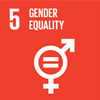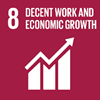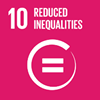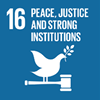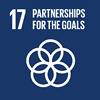Article
UNU-WIDER ongoing work on the effect of COVID-19 on the economies, states, and societies of the Global South
Our work on COVID-19 will continue to focus on on the five Sustainable Development Goals (SDGs) that all of our work during 2019-2023 addresses; SDG5 - Gender Equality, SDG8 - Decent work and Economic Growth, SDG10 - Reduced Inequalities, SDG16 - Peace, Justice and Strong Institutions, and SDG17 - Partnerships for the Goals.
PUBLICATIONS
WORKING PAPER | The effect of wage subsidies on job retention–Evidence from South Africa during the COVID-19 pandemic | Timothy Köhler, Robert Hill, Haroon Bhorat
Wage subsidies have served as a primary labour market policy used around the world to mitigate job losses in response to the COVID-19 pandemic. In South Africa, where unemployment is among the highest globally, the Temporary Employer–Employee Relief Scheme supported millions of workers in a far-reaching and progressive manner. Read more.
WORKING PAPER | Performance of tax-benefit systems amid COVID-19 crises in sub-Saharan Africa | Jesse Lastunen et al.
This study examines the distributional effects of the COVID-19 pandemic and associated tax-benefit measures in seven sub-Saharan African countries, focusing on the onset of the crisis. Read more.
 WORKING PAPER | Comparing the poverty-reduction efficiency of targeted versus universal benefits amid crises | Adnan Abdulaziz Shahir et al.
WORKING PAPER | Comparing the poverty-reduction efficiency of targeted versus universal benefits amid crises | Adnan Abdulaziz Shahir et al.
This study evaluates which type of benefit—a universal benefit, a proxy mean-tested benefit, or a categorical benefit— better cushions the poverty effects of income shocks in a developing economy. This compare the effectiveness of the three benefit schemes on poverty first conceptually and then by considering two different crisis scenarios, the COVID-19 pandemic and a hypothetical agricultural shock, in a tax-benefit microsimulation model for Ethiopia. Read more.
WORKING PAPER | Impact of the COVID-19 pandemic on employment – Findings from national labour surveys in five Latin American countries | Martha Alter Chen, Joann Vanek
This paper provides a comparative summary of recent national statistics from five Latin American countries on employment losses and gains during the peak COVID-19 years compared with pre-pandemic levels. Read more.
WORKING P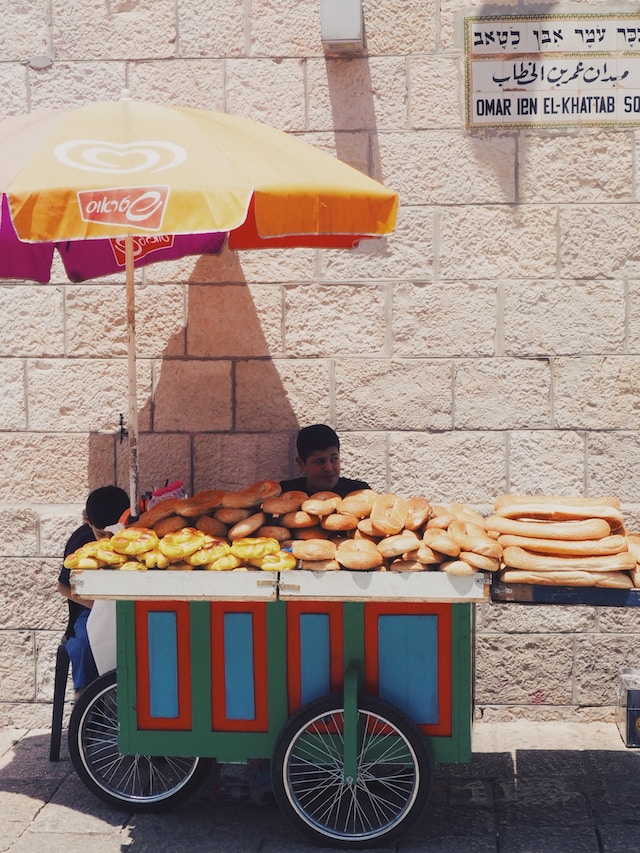 APER | Social protection, the COVID-19 crisis, and the informal economy –Lessons from relief for comprehensive social protection | Laura Alfers, Florian Juergens-Grant
APER | Social protection, the COVID-19 crisis, and the informal economy –Lessons from relief for comprehensive social protection | Laura Alfers, Florian Juergens-Grant
This paper considers the implications of COVID-19 relief measures for the building and extension of comprehensive and universal social protection systems. It highlights three key areas emerging from the crisis, which are likely to affect the shape of social protection systems moving forward. Read more.
WORKING PAPER | Informal employment: what is missing from national economic recovery plans? | Siviwe Mhlana, Rachel Moussié, Sally Roever, Michael Rogan
This paper analyses the economic recovery approaches of two low-income (Bangladesh and Kenya) and two middle-income (South Africa and Thailand) countries. The paper assesses the economic recovery responses in light of what is known about the impact of the crisis on informal workers globally, and the structure of informal employment in each country. Read more.
WORKING PA PER | The uneven path to recovery: The sub-Saharan experience | Michael Danquah, Amina Ebrahim, Maureen Were
PER | The uneven path to recovery: The sub-Saharan experience | Michael Danquah, Amina Ebrahim, Maureen Were
In this paper, we discuss the evolution of the pandemic and containment measures, the subsequent policy responses, and the effectiveness of these policies in Ghana, Kenya, and South Africa. The discussions show that some individuals, particularly informal workers, did not have access to support packages. Read more.
WORKING PAPER | Development aid in fragile states: Investigating the effectiveness of COVID-19 aid in the Democratic Republic of the Congo | Hany Besada, Lukmon Akintola
Drawing from a growing body of literature on development aid in fragile contexts, this paper investigates the effectiveness of COVID-19 aid in the Democratic Republic of the Congo (DRC). Read more.
WORKING PAPER | Aid effectiveness in fragile and conflict-affected contexts: Lessons from more than two decades of research | David Carment, Yiagadeesen Samy
The objective of this paper is to focus on fragility research findings and examine what works or does not work in development aid and development cooperation in fragile and conflict-affected contexts. We draw on our own research findings as well as country-level studies. Read more.
WORKING PAPER | The role of social protection and tax policies in cushioning crisis impacts on income and poverty in low- and middle-income countries: A rapid scoping review | Rodrigo Oliveira et al.
This paper reviews existing empirical literature on the subject, conducting a scoping review on quantitative studies published between 2000 and 2022. Following a structured selection approach, we identify 38 studies about the role of social protection and taxation in LMICs during periods of crisis. Read more.
WORKING PAPER |  Top earners and earnings inequality during the COVID-19 pandemic: Evidence from Ecuadorian administrative data | Olivier Bargain et al.
Top earners and earnings inequality during the COVID-19 pandemic: Evidence from Ecuadorian administrative data | Olivier Bargain et al.
This paper aims to assess the extent to which top earners in Ecuador were affected by the COVID-19 crisis compared to other segments of the population. See more.
WORKING PAPER | The impact of COVID-19 on urban informal workers in Maputo | Nilifer Anaç et al.
Informal self-employed traders in developing countries are vulnerable to shocks as they often lack access to social insurance or formal finance. This study investigates the impact of the COVID-19 pandemic on these urban traders in the capital of Mozambique, Maputo. Read more.
 WORKING PAPER | Tax–benefit responses in Uruguay during the COVID-19 pandemic | Verónica Amarante, Federico Scalese
WORKING PAPER | Tax–benefit responses in Uruguay during the COVID-19 pandemic | Verónica Amarante, Federico Scalese
This paper analyses the social protection policy response to COVID-19 and its impact on household incomes in Uruguay during 2020 and 2021, based on static microsimulation methods. From the onset of the crisis, the Uruguayan government implemented adjustments to existing social protection policies as well as a new transfer and an emergency tax. Read more.
WORKING PAPER | Humanity over economy: biopolitical responses to the COVID-19 pandemic in Ghana | James McKeown
This study posits that pandemics should be regarded as complex, open-ended phenomena that cannot be reduced to biology and epidemiology. The research assesses Ghana’s effectiveness in governing the COVID-19 pandemic contrary to apocalyptic predictions. This paper critiques Ghana’s responses to the COVID-19 pandemic through the lens of Foucault’s biopolitics. Read more.
WORKING PAPER |  Trust as state capacity — The political economy of compliance | Timothy Besley, Sacha Dray
Trust as state capacity — The political economy of compliance | Timothy Besley, Sacha Dray
This paper explores the link between trust in government, policy-making, and compliance. It focuses on a specific channel whereby citizens who are convinced that a policy is worthwhile are more motivated to comply with it. This in turn reduces the government’s cost of implementing a policy and may also increase the set of feasible policies. Read more.
WORKING PAPER | Social protection floor gaps and pandemic relief measures: a case for universalism? | Annalena Oppel
This study focuses on how social protection coverage before the pandemic influences the extent of targeted versus universalist policies in advanced and developing economies. It offers new insights regarding continued and new patterns in policy design, particularly concerning beneficiaries and the type of programmes, by learning from the policy mix of crisis relief. Read more.
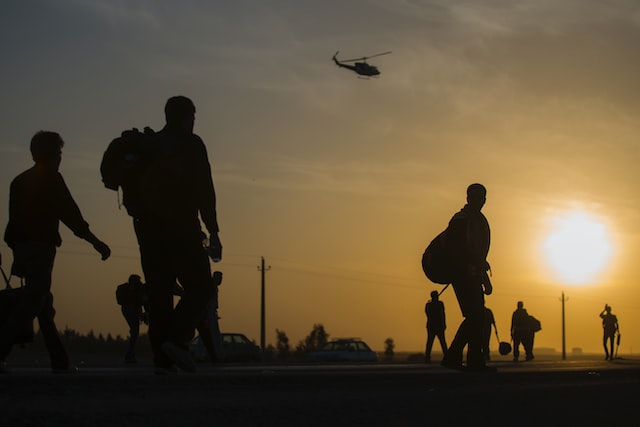 WORKING PAPER | Rebel governance during COVID-19 – Describing and explaining armed groups’ response to the pandemic in the Middle East | Marta Furlan
WORKING PAPER | Rebel governance during COVID-19 – Describing and explaining armed groups’ response to the pandemic in the Middle East | Marta Furlan
As COVID-19 spread worldwide, armed groups in control of territory were called to address the health emergency. However, our knowledge in this regard is limited. Specifically, it remains poorly understood why different armed groups responded to the crisis differently. This paper aims to illuminate the responses that different armed groups throughout the Middle East implemented in order to address COVID-19 and to explain why armed groups responded to the pandemic as they did. Read more.
WORKING PAPER | The role of tax–benefit systems in protecting household incomes in Latin America during the COVID-19 pandemic | David Rodríguez et al.
The aim of this paper is to assess in a comparative way the role of tax–benefit policies in protecting household incomes during the pandemic in seven Latin American countries: Argentina, Bolivia, Colombia, Ecuador, Mexico, Peru, and Uruguay. Read more.
WORKING PAPER | Agricultural risks, the COVID-19 pandemic, and farm household welfare and diversification strategies in Africa | Abdul Malik Iddrisu, Alhassan Abdul-Wakeel Karakara, Evans S. Osabuohien
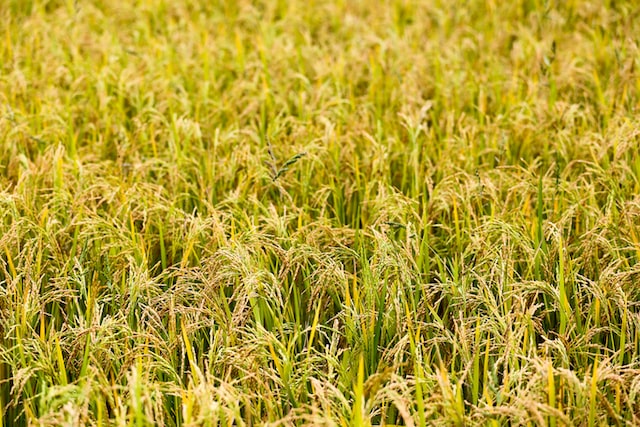 Agricultural activities in many African countries are bedevilled by a range of risk factors. Using micro-level household datasets from a range of countries in Africa, this paper examines the drivers of agricultural risks, while exploring the role of context as well as the impact of the COVID-19 pandemic on household welfare, with a focus on farm households relative to their non-farm counterparts. Read more.
Agricultural activities in many African countries are bedevilled by a range of risk factors. Using micro-level household datasets from a range of countries in Africa, this paper examines the drivers of agricultural risks, while exploring the role of context as well as the impact of the COVID-19 pandemic on household welfare, with a focus on farm households relative to their non-farm counterparts. Read more.
WORKING PAPER | Impacts of COVID-19 lockdowns and aid packages
Evidence from Viet Nam | Cuong Viet Nguyen
In view of the detrimental effect of COVID-19 lockdowns on household welfare, most countries implemented economic stimulus aid packages to support households. The extent to which these packages mitigated the pandemic’s adverse effects on households is not just an intriguing question for researchers but is also important for policy makers. Read more.
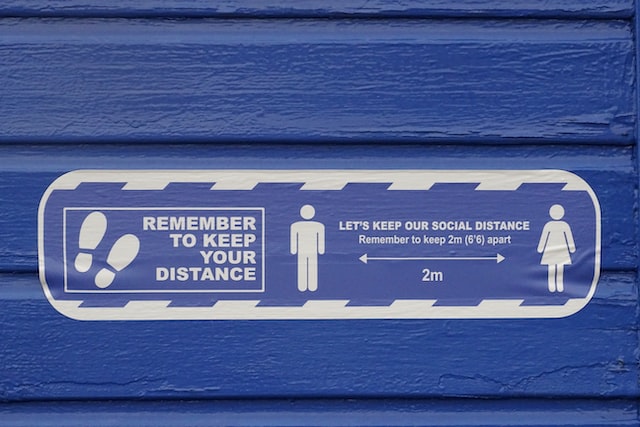 WORKING PAPER | Physical proximity and occupational employment change by gender during the COVID-19 pandemic | Jacqueline Mosomi, Amy Thornton
WORKING PAPER | Physical proximity and occupational employment change by gender during the COVID-19 pandemic | Jacqueline Mosomi, Amy Thornton
This paper shows a higher ratio of female-to-male job loss in the 2020 recession compared to 2008–09 is partly explained by South African women’s clustering in occupations high in physical proximity. Occupations higher in physical proximity, difficult to perform from home, or deemed non-essential by government were most likely to shed jobs. Read more.
WORKING PAPER | Digital labour platforms as shock absorbers
Evidence from COVID-19 | Sam Jones, Ivan Manhique
Digital labour platforms have grown five-fold over the last decade, enabling significant expansion in gig work worldwide. This paper interrogates the criticism that these platforms tend to amplify aggregate economic shocks for registered users (workers). Read more.
WORKING PAPER | 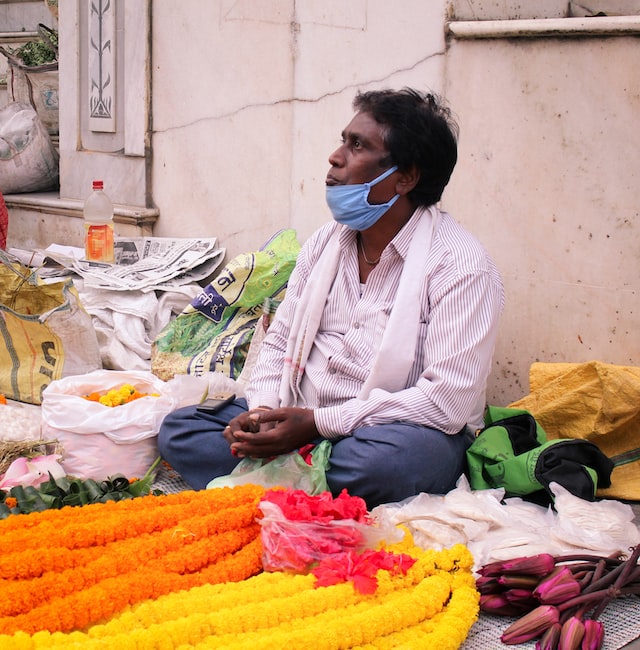 Who was impacted and how? COVID-19 pandemic and the long uneven recovery in India | Mrinalini Jha, Rahul Lahoti
Who was impacted and how? COVID-19 pandemic and the long uneven recovery in India | Mrinalini Jha, Rahul Lahoti
This paper investigates the impact of the COVID-19 pandemic on income levels, poverty, and inequality in both the immediate aftermath and during the uneven recovery until December 2021 using high-frequency household survey data from India. Read more.
WORKING PAPER | Social protection expansions during crisis and fiscal space –
From ad hoc to durable solutions? | Annalena Oppel
This study provides a first attempt to contribute a large-scale assessment of whether crisis response as observed during the COVID-19 pandemic can serve as a feasible blueprint for creating durable solutions across countries. Read more.
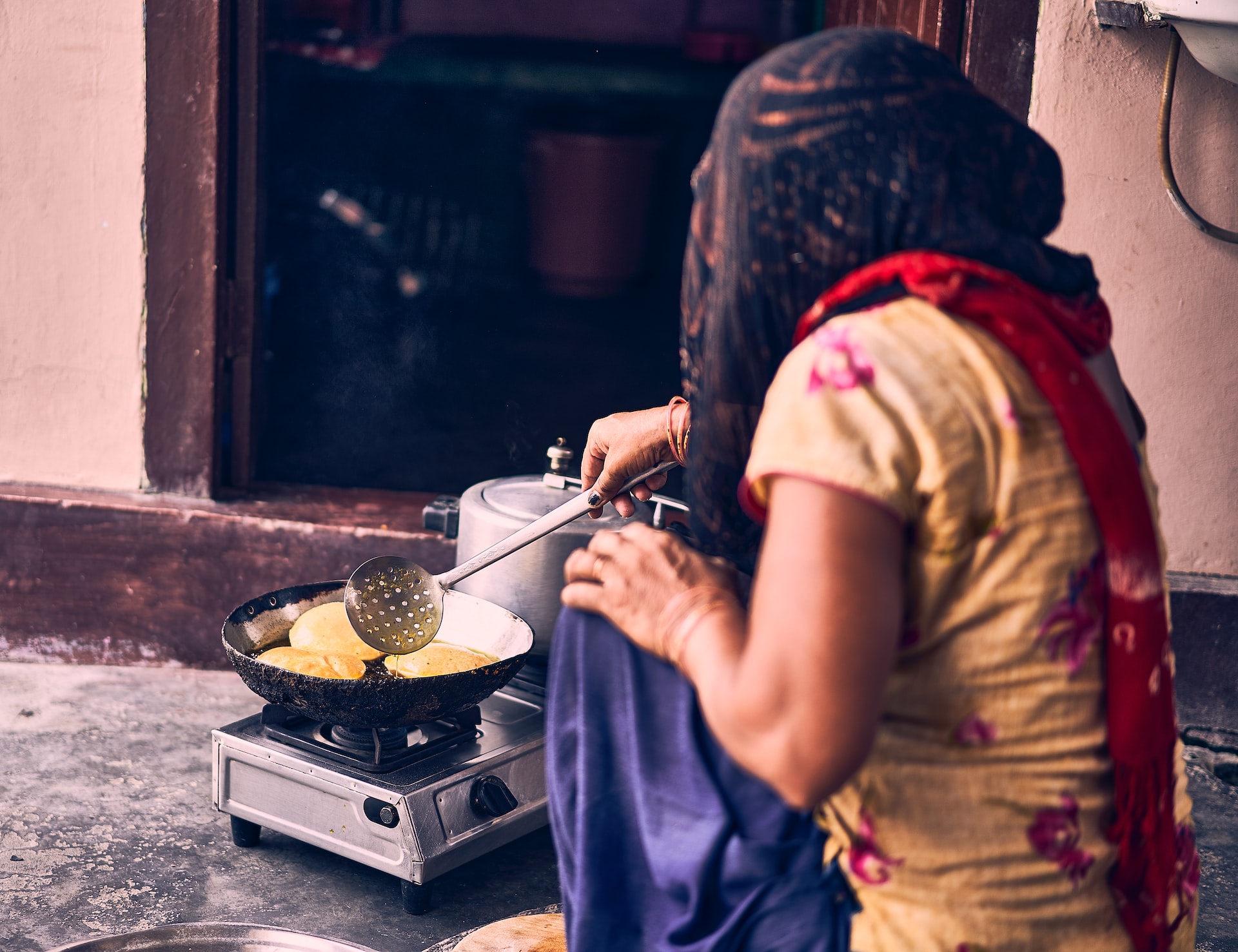 WORKING PAPER |The COVID-19 pandemic and poor women’s agency – A case of domestic workers in Delhi | Deepita Chakravarty, Nandini Nayak
WORKING PAPER |The COVID-19 pandemic and poor women’s agency – A case of domestic workers in Delhi | Deepita Chakravarty, Nandini Nayak
This paper on the gender impact of the pandemic and the consequent lockdowns and curfews in the city of Delhi, India, seeks to explore whether women who have achieved some agency from their work gain a stronger capacity for intra-household bargaining and are less likely to face household-level discrimination. Read more.
WORKING PAPER | How have formal firms recovered from the pandemic? Insights from survey and tax administrative data in Zambia | Christopher Hoy et al.
This paper examines how formal firms have been impacted by and recovered from the pandemic by drawing on two distinct but complementary data sources. This is the first attempt to use both survey and tax administrative data to measure the initial decline and subsequent recovery of firm sales and employment in a low- or lower-middle-income country. Read more.
WORKING PAPER  | Management of the COVID-19 pandemic in Kerala through the lens of state capacity and clientelism | Jos Chathukulam, Manasi Joseph
| Management of the COVID-19 pandemic in Kerala through the lens of state capacity and clientelism | Jos Chathukulam, Manasi Joseph
This paper examines the state capacity in terms of health infrastructure before and during the pandemic. The paper also investigates the reasons behind the unravelling of the Kerala model of pandemic management. Read more.
WORKING PAPER | The social foundations of (in)effective states | Indrajit Roy
A rich and growing literature illustrates the paradox of COVID-19 responses by governments across the world. States with higher levels of authority and capacity have struggled to respond effectively to COVID-19, while states with low capacity and authority have been more effective in containing the pandemic. Read more.
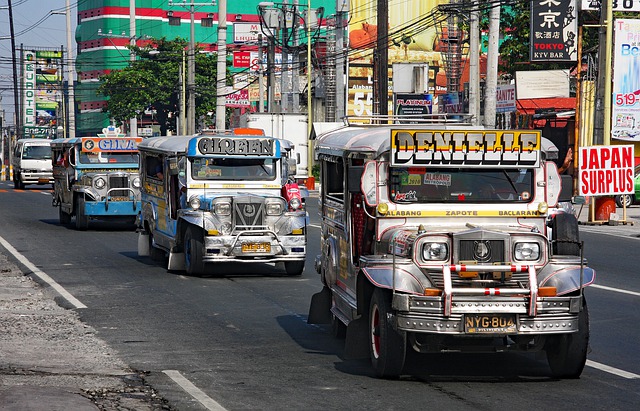 WORKING PAPER | Duterte’s pandemic populism | Julio C. Teehankee
WORKING PAPER | Duterte’s pandemic populism | Julio C. Teehankee
This paper will unpack Duterte’s deployment of ‘brute force governance’ (which he earlier employed in his bloody ‘war on drugs’) in addressing the COVID-19 crisis in the Philippines. Read more.
WORKING PAPER | Governance and COVID-19 in Bolivia | Calla Hummel et al.
This paper analyses original daily data on COVID-19 cases, deaths, movements, and policies at the subnational level from Bolivia’s nine departments. The data spans a year, from 10 March 2020 to 10 March 2021. The paper finds that some departments had much higher cases and deaths per 100,000 residents than others. Read more.
WORKING PAPER |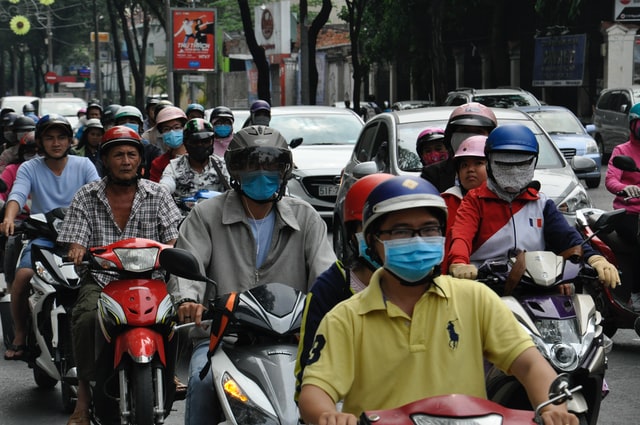 Does an effective government lower COVID-19’s health impact? | Duc Anh Dang, Ngoc Anh Tran
Does an effective government lower COVID-19’s health impact? | Duc Anh Dang, Ngoc Anh Tran
This paper discusses the different aspects of government effectiveness in explaining the variation in the COVID-19 confirmed cases and death levels in Viet Nam. We use the Provincial Governance and Public Administration Performance Index in 2019 to measure the quality of government effectiveness at the local level. Read more.
TECHNICAL NOTE | On-model adjustment of incomes during COVID-19 in SOUTHMOD tax-benefit microsimulation models | Jesse Lastunen
This note describes methods to derive employment-to-unemployment transition shares across industries during the COVID-19 pandemic and to use these shares in SOUTHMOD tax-benefit microsimulation models to adjust relevant labour market variables. Read more.
 WORKING PAPER | The COVID-19 pandemic and the state in Bihar | Avinash Kumar, Manish Kumar
WORKING PAPER | The COVID-19 pandemic and the state in Bihar | Avinash Kumar, Manish Kumar
This paper presents a critical analysis of official data related to COVID-19 in Bihar state, India, which points to the manipulation of data for political ends. The ruling party’s claim that the state managed the COVID pandemic brilliantly seems more politically motivated than scientific. Read more.
WORKING PAPER | COVID-19 and the state: Nicaragua case study | Mateo C. Jarquín
Unlike Latin American peers, and contrary to World Health Organization recommendations, Nicaragua eschewed lockdowns and other common strategies to mitigate the spread of COVID-19. Analysts have since demonstrated how Nicaraguan authorities dramatically under-reported the number of deaths and infections that resulted (though a dearth of data complicates cross-country comparisons). This paper argues that rather than optimizing for fewer cases and deaths, the authoritarian government of President Daniel Ortega instead attuned its pandemic response to other, political and economic, variables. Read more.
WORKING PAPER 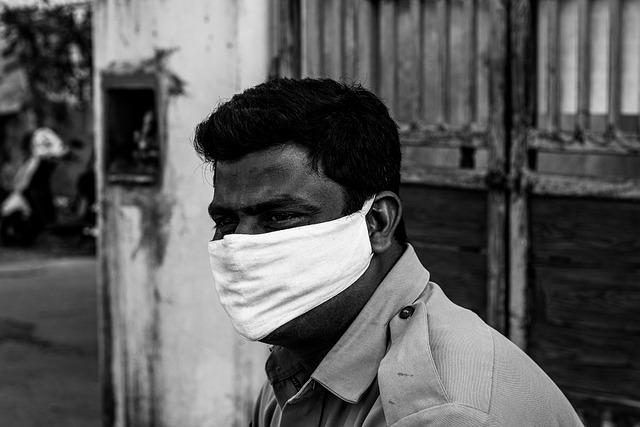 | Pandemic precarity and the complicated case of Maharashtra | Manish K Jha
| Pandemic precarity and the complicated case of Maharashtra | Manish K Jha
The state of Maharashtra and the city of Mumbai have been referred to as the epidemic epicentre of India since the time of the plague of 1896 and influenza epidemic of 1918. During the COVID-19 pandemic too, the state experienced the highest cases with maximum fatalities. The paper emphasizes that the case of Maharashtra underscores the importance of decentralized planning and recognizes the value of collaborative federalism. Read more.
WORKING PAPER | Residual capacity and the political economy of pandemic response in Ghana | Kofi Takyi Asante
On the whole, poor countries in Africa and elsewhere seem to have weathered the coronavirus (SARS-CoV-2, or COVID-19) pandemic better than wealthier countries. Using the Ghanaian case, this paper draws on newspaper articles, policy statements, and other secondary sources to explain how the country’s competitive clientelist political settlement mediated the public health outcomes of the pandemic. Read more.

BACKGROUND NOTE | Expanding a wage subsidy during lockdown | Amina Ebrahim, Sibusiso Gumbi
This note outlines the structure of the original Employment Tax Incentive (ETI) in South Africa, presents some statistics from previous policy years, puts some numbers to the COVID ETI implemented due to the pandemic, and suggests avenues for further research. Read more.
BLOG | COVID-19 in India: cases, deaths, and vaccinations | Rachel Gisselquist, Anustup Kundu
The Omicron variant resulted in a third major wave of Covid-19 in India, with the number of cases exceeding those in the second wave, albeit causing less severe illness on average. In this post, Kundu and Gisselquist draw on several nationally representative data sources to illuminate key Covid-19 patterns and trends in the country pre-Omicron – capturing the differential impacts across regions, and discuss how the pandemic response can be improved. Read more.
WORKING PAPER 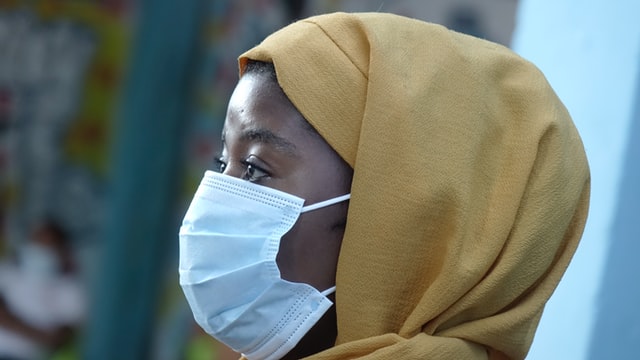 | The Tanzanian state response to COVID-19 | Amy S. Patterson
| The Tanzanian state response to COVID-19 | Amy S. Patterson
Tanzania received significant global attention for its COVID-19 response during the first year of the pandemic. It did not share pandemic statistics, require masks, implement lockdowns, or close borders; it questioned testing and vaccine efficacy; and it emphasized traditional medicines as a cure. Read more.
JOURNAL ARTICLE | The impact of COVID-19 on consumption poverty in Mozambique | Giulia Barletta et al.
This study assesses the impact of COVID-19 on household consumption poverty. To predict changes in income and the associated effects on poverty, we rely on existing estimated macroeconomic impacts. Read more.
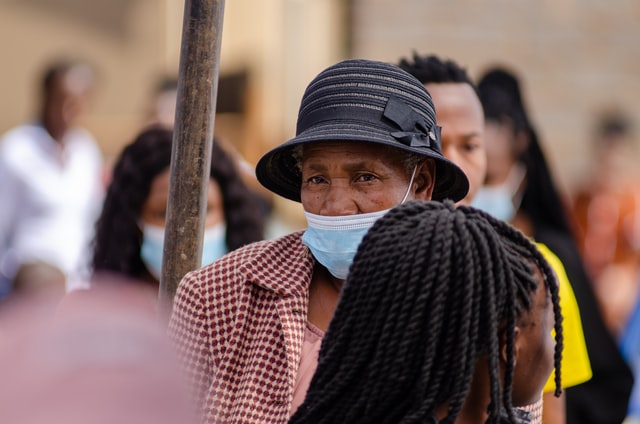 REPORT | Policy in the time of pandemic | Thokozani Chilenga-Butao
REPORT | Policy in the time of pandemic | Thokozani Chilenga-Butao
This case study details the policy choices and decisions of the South African government to provide economic relief, through social grants, to vulnerable South Africans and those resident in South Africa to enable them to withstand the effects of the coronavirus pandemic. Read more.
BLOG | The COVID-19 crisis, informal workers, and gender — understanding the intersections | Martha Alter Chen
The COVID-19 crisis — the pandemic, restrictions, and recession — has not been a grand leveler. While all of us, rich and poor, faced the fear and uncertainty of the virus, the crisis has exposed and amplified pre-existing inequalities, injustices, and insecurities. Depending on their positionality and perspective, some observers focus on the disproportionate impact that the crisis has had on women while others focus on the disproportionate impact that the crisis has had on the working poor or poor more generally. Read more.
WORKING PAPER | 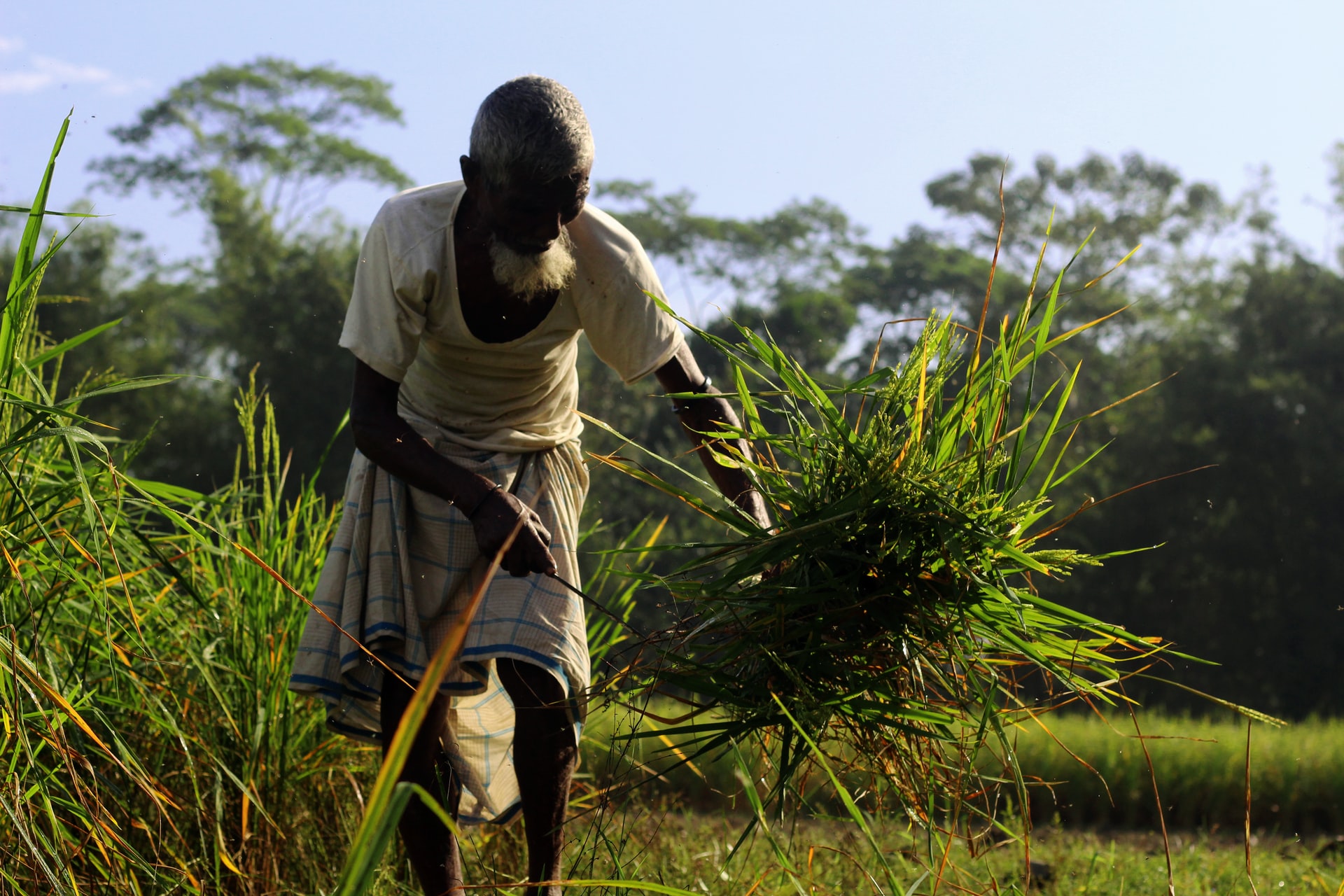 Recovery with distress: unpacking COVID-19 impact on livelihoods and poverty in Bangladesh | Hossain Zillur Rahman et al.
Recovery with distress: unpacking COVID-19 impact on livelihoods and poverty in Bangladesh | Hossain Zillur Rahman et al.
The Power and Partcipation Research Centre and BRAC Institute for Governance and Development’s four-round panel survey during 2020–21 provides unique insights into how COVID-19 impacted specific categories of the poor and vulnerable in Bangladesh, their coping strategies, and the extent to which policy support materialzed. Read more.
WORKING PAPER | An assessment of the effects of COVID-19 pandemic on Kenya’s trade | Maureen Were, Kethi Ngoka
This working paper examines the impact of the COVID-19 pandemic on Kenya’s foreign trade using quarterly trade data for the period 2019 to the second quarter of 2021. Read more.
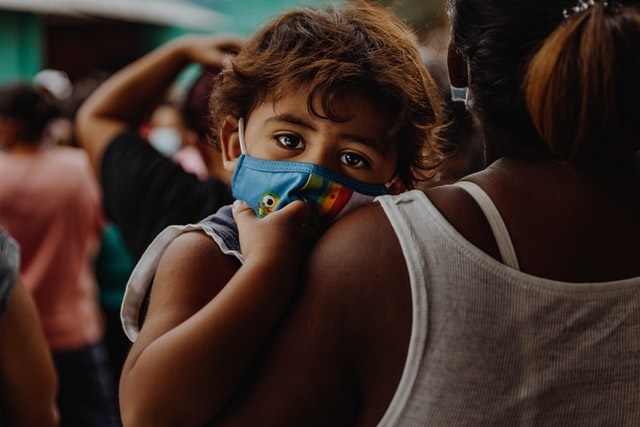 JOURNAL ARTICLE | Measuring global poverty before and during the pandemic | Andy Sumner, Eduardo Ortiz-Juarez, Chris Hoy
JOURNAL ARTICLE | Measuring global poverty before and during the pandemic | Andy Sumner, Eduardo Ortiz-Juarez, Chris Hoy
The contribution of this study is to question the ‘official’ estimates of global monetary poverty up to and during the COVID-19 pandemic. The article argues there is a political economy of overoptimism in the measurement of global poverty. Read more.
BLOG | Corona pandemic revealed gaps in African social security systems | Matti Remes
Millions of Africans lost their jobs as a result of the coronavirus pandemic, but state social security systems were of little help to people who lost their income. This blog discusses gaps in African social security systems that have been highlighted due to the COVID-19 pandemic. Read more.
WORKING PAPER | Dynamic impacts 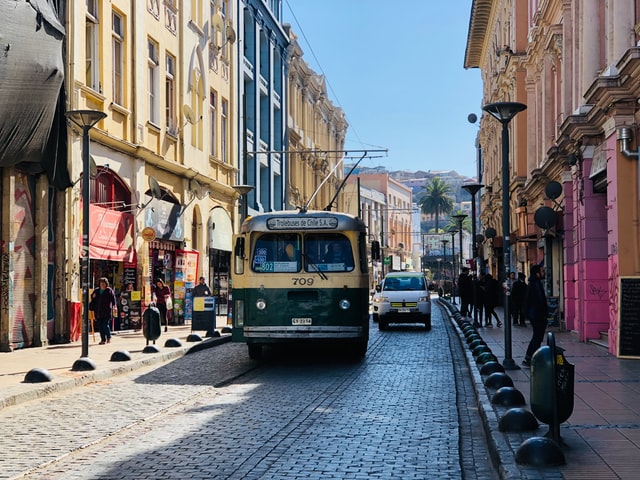 of lockdown on domestic violence | Sonia Bhalotra, Emilia Brito, Damian Clarke, Pilar Larroulet, Francisco J. Pino
of lockdown on domestic violence | Sonia Bhalotra, Emilia Brito, Damian Clarke, Pilar Larroulet, Francisco J. Pino
This working paper examines staggered implementation of lockdown across Chile’s 346 municipalities, identifying dynamic impacts on domestic violence. Read more.
BLOG | The pandemic and Africa's social safety net | Jesse Lastunen, Pia Rattenhuber, Rodrigo C. Oliveira
The COVID-19 pandemic has shown that African tax and social-benefit systems are currently ill-equipped to protect households from sudden income losses. Meaningful progress will require policymakers to reduce the size of the informal sector and improve the design and financing of social-protection measures. Read more.
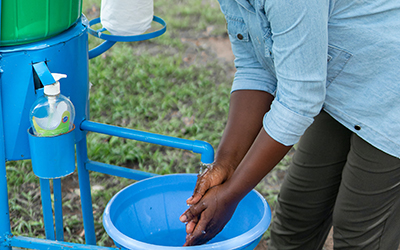 BLOG | Efforts to protect the poor during COVID | Jesse Lastunen, Pia Rattenhuber, Rodrigo C. Oliveira
BLOG | Efforts to protect the poor during COVID | Jesse Lastunen, Pia Rattenhuber, Rodrigo C. Oliveira
The number of people living in poverty around the world is estimated to have increased by half a billion people due to the COVID-19 crisis. The African continent has suffered at least US$100 billion in economic costs in 2020, measured by the reduction in trade revenues and financial flows due to the pandemic. This blog discusses how 5 countries in sub-Saharan Africa have worked to protect the poor from the pandemic. Read more.
WORKING PAPER | Simulation of options to replace the special COVID-19 Social Relief of Distress grant and close the poverty gap at the food poverty line | Maya Goldman, Ihsaan Bassier, Joshua Budlender, Lindi Mzankomo, Ingrid Woolard, Murray Leibbrandt
This working paper uses a fiscal incidence model based on the South African 2014/15 Living Conditions Survey to simulate the poverty reduction impacts of a selection of medium-to-long-term social grant options with the goal of replacing the existing special COVID-19 Social Relief of Distress grant upon its expiry and closing the extreme (food poverty line) poverty gap. Read more
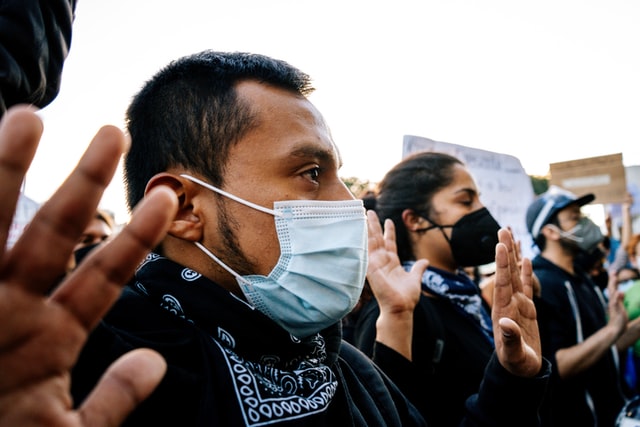 WORKING PAPER | COVID-19 in Central America: effects of firm resilience and policy responses on employment | Beatriz Calzada Olvera, Mario Gonzalez-Sauri, Federico Louvin, David-Alexander Harings Moya
WORKING PAPER | COVID-19 in Central America: effects of firm resilience and policy responses on employment | Beatriz Calzada Olvera, Mario Gonzalez-Sauri, Federico Louvin, David-Alexander Harings Moya
This working paper examines how firm-level resilience capabilities interact with government support in the reduction of lay-offs among formal firms in Central America through data from the World Bank Enterprise Survey. Read more
POLICY BRIEF | Distributional effects of the COVID-19 pandemic in Zambia | Mbewe Kalikeka, Miselo Bwalya, Kwabena Adu-Ababio, Katrin Gasior, David McLennan, Pia Rattenhuber
Zambia’s economic growth has been flattening over the past decade. In 2020 economic prospects further worsened, following the onset of the pandemic, rising debt, and the Eurobond default. In this unprecedented scenario, there is the need to examine impacts on welfare and the mitigation role taxes and benefits play. MicroZAMOD, the tax-benefit microsimulation model for Zambia, helps in the investigation of the COVID-19 shock. Read more
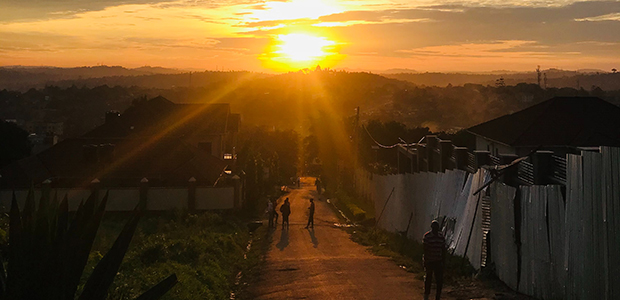 POLICY BRIEF | Distributional effects of the COVID-19 pandemic in Uganda | Jesse Lastunen, Gemma Wright, Michael Noble, Ronald Waiswa, Joseph Okello Ayo, Nalukwago Milly Isingoma
POLICY BRIEF | Distributional effects of the COVID-19 pandemic in Uganda | Jesse Lastunen, Gemma Wright, Michael Noble, Ronald Waiswa, Joseph Okello Ayo, Nalukwago Milly Isingoma
In 2020, the first wave of the COVID-19 pandemic caused an economic crisis that disrupted the Ugandan labour market. How large were the associated income losses across different industries and population groups? To what extent did the general tax-benefit system mitigate the adverse effects of the crisis? UGAMOD, the tax-benefit microsimulation model for Uganda, helps to answer these questions. Read more
POLICY BRIEF | Limited impact of the tax-benefit system in Tanzania during the COVID-19 pandemic in 2020 | Elineema Kisanga, Vincent Leyaro, Michael Noble, Rodrigo C. Oliveira, Pia Rattenhuber, Gemma Wright
Tanzania, similar to most sub-Saharan countries, reported its first COVID-19 cases in March 2020. While GDP estimates suggest that the economy was less hard hit than in other African countries, some sectors have nevertheless experienced negative growth. Even with contained GDP contractions in 2020, the country’s tax-benefit system was not effective in buffering the shock, raising concerns should the situation exacerbate. Read more
 POLICY BRIEF | The role of tax-benefit policies during the COVID-19 pandemic in 2020 in Mozambique | José Cardoso, Vanda Castelo, Finório Castigo, Michael Noble, Rodrigo C. Oliveira, Pia Rattenhuber, Gemma Wright
POLICY BRIEF | The role of tax-benefit policies during the COVID-19 pandemic in 2020 in Mozambique | José Cardoso, Vanda Castelo, Finório Castigo, Michael Noble, Rodrigo C. Oliveira, Pia Rattenhuber, Gemma Wright
Mozambique reported its first case of COVID-19 on 22 March 2020. GDP estimates suggest a strong pandemic effect, with a reduction in seven of nine business sectors analysed. However, the agriculture sector, one of the most important, experienced a 9% increase, which may have cushioned the pandemic impact. Read more
POLICY BRIEF | Distributional effects of the COVID-19 pandemic in Ghana | Kwabena Adu-Ababio, Robert Darko Osei, Jukka Pirttilä, Pia Rattenhuber
The first cases of COVID-19 in sub-Saharan Africa were reported in March 2020, and the impact of the pandemic has since rippled through the world and Africa. In response to the crisis and similarly to many of its peers, Ghana has enacted a variety of containment measures to confront the pandemic, and a variety of tax-benefit measures to protect society from the severely reduced economic activity. Read more
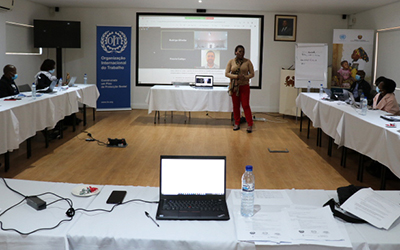 BLOG | Working together to better understand how COVID-19 affects poverty and inequality | Pia Rattenhuber, Rodrigo C. Oliveira, Jesse Lastunen
BLOG | Working together to better understand how COVID-19 affects poverty and inequality | Pia Rattenhuber, Rodrigo C. Oliveira, Jesse Lastunen
In summer 2020 the SOUTHMOD team set out, with partners, to analyse the impact of government policies on protecting households from getting poorer and avoiding societies from becoming more unequal. Now we are releasing a cross-country comparative study that analyses the distributional effects of the COVID-19 pandemic and related tax-benefit measures in 2020 in five African countries. Read more
WORKING PAPER | The mitigating role of tax and benefit rescue packages for poverty and inequality in Africa amid the COVID-19 pandemic | Jesse Lastunen, Pia Rattenhuber, Kwabena Adu-Ababio, Katrin Gasior, H. Xavier Jara, Maria Jouste, David McLennan, Enrico Nichelatti, Rodrigo C. Oliveira, Jukka Pirttilä, Matteo Richiardi, Gemma Wright
This Working Paper analyses the distributional effects of the COVID-19 pandemic and related tax-benefit measures in 2020 in a cross-country comparative perspective for five African countries: Ghana, Mozambique, Tanzania, Uganda, and Zambia. Read more
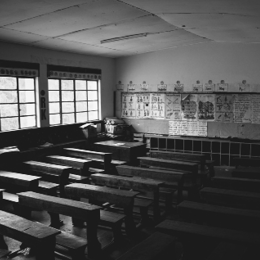 BLOG | Wasted talent – How COVID-19’s effect on the poor could make all of society poorer | Ruby Richardson
BLOG | Wasted talent – How COVID-19’s effect on the poor could make all of society poorer | Ruby Richardson
Oriana Bandiera's conference presentation on the impacts of the pandemic, opens with statistics on recent poverty trends. Trends that, at this stage, are not particularly surprising to those working in the development field. The pandemic has triggered a harrowing increase in poverty. Where the situation was promising, progress halted and reversed — where the situation was bad, the pandemic has made it much worse. She quickly moves into a much more puzzling question — is this shift likely to be permanent, or will these changes be reversed after the pandemic passes? Read more
JOURNAL ARTICLE | COVID-19 and global poverty - Are LDCs being left behind? | Giovanni Valensisi
The study paper provides a preliminary assessment of COVID-19’s impact on global poverty in the light of IMF’s growth forecasts. It shows that the pandemic will erode many of the gains recorded over the last decade in terms of poverty reduction. Read more
JOU RNAL ARTICLE | Data deprivations, data gaps and digital divides - Lessons from the COVID-19 pandemic | Wim Naudé and Ricardo Vinuesa
RNAL ARTICLE | Data deprivations, data gaps and digital divides - Lessons from the COVID-19 pandemic | Wim Naudé and Ricardo Vinuesa
This study draws lessons from the COVID-19 pandemic for the relationship between data-driven decision making and global development. Read the lessons here
BLOG | Social protection at a crossroad | Annalena Oppel
How can we ensure a resilient and inclusive recovery from COVID-19? How can we hold on to the target of eradicating poverty and hunger by 2030, with the pandemic still ongoing? Read more
IN THE MEDIA | Media on the effect of COVID-19 to the extreme poor with data from UNU-WIDER
In a feature story by local Finnish news service Yle, UNU-WIDER Director, Kunal Sen, was interviewed on the effects of COVID-19, providing insight on the impact in low-income countries and to the poor. He speaks to the debt burden in Africa and the undoing of progress towards the SDGs, especially given the increase in extreme poverty and inequality. However, he also comments on the options available to learn from the pandemic, especially with regard to the treatment and conditions of informal workers. Read more.
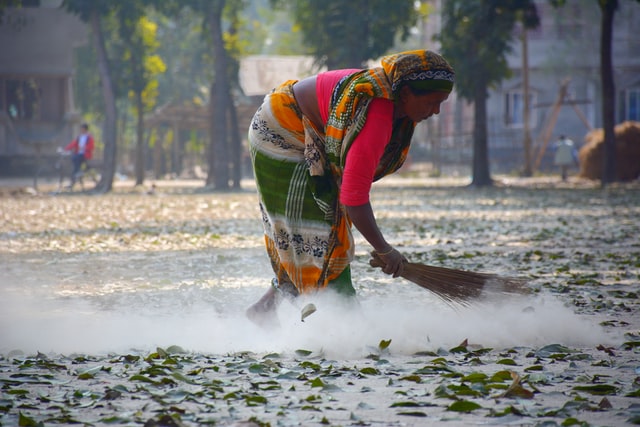 BLOG | Helping the poor to survive lockdown | Risto Rönkkö, Stuart Rutherford and Kunal Sen
BLOG | Helping the poor to survive lockdown | Risto Rönkkö, Stuart Rutherford and Kunal Sen
The Hrishipara Daily Diaries Project has been tracking the daily spending of 60 poor households in rural Bangladesh for the last six years. Analysis of the data collected – especially the changes to spending patterns that have occurred during the pandemic – reveals four areas where policymakers should step in. Read more
WORKING PAPER | The COVID-19 pandemic and the economy in Southern Africa | Neva Makgetla
The COVID-19 pandemic has had severe economic consequences in Southern Africa, resulting in an unprecedented decline in production and employment. Similar policy responses have emerged across the region, centred on temporary and inadequate relief for workers and businesses; very limited fiscal and monetary stimulus efforts; and vague and under-resourced commitments to accelerate industrialization and infrastructure investment. Read more
B LOG | Why countries best placed to handle the pandemic appear to have fared the worst | Rachel M. Gisselquist and Andrea Vaccaro
LOG | Why countries best placed to handle the pandemic appear to have fared the worst | Rachel M. Gisselquist and Andrea Vaccaro
During the first year of the pandemic, it was wealthier countries, with their comparatively stronger health systems, civil services, legal systems and other public services, that suffered the highest rates of COVID-19. Indeed, countries rated to be best prepared to respond to public health threats such as pandemics – those with the greatest “global health security” – had the most COVID-related fatalities. Read more
WORKING PAPER | The role of trust and of poverty in compliance with social distancing measures in Africa during the COVID-19 pandemic | Edson Mazive, Gerson Baza, Gimelgo Xirinda, Ivan Manhique, Jorge Mouco, and Silvestre Matola
Since it began, the COVID-19 pandemic has imposed a number of challenges on Africa and the rest of the world. Following the recommendations of the World Health Organization, many countries imposed social distancing measures and cancelled non-essential activities in order to contain the spread of the virus, reduce the infection rate, and ease the pressure on the health system. Read more
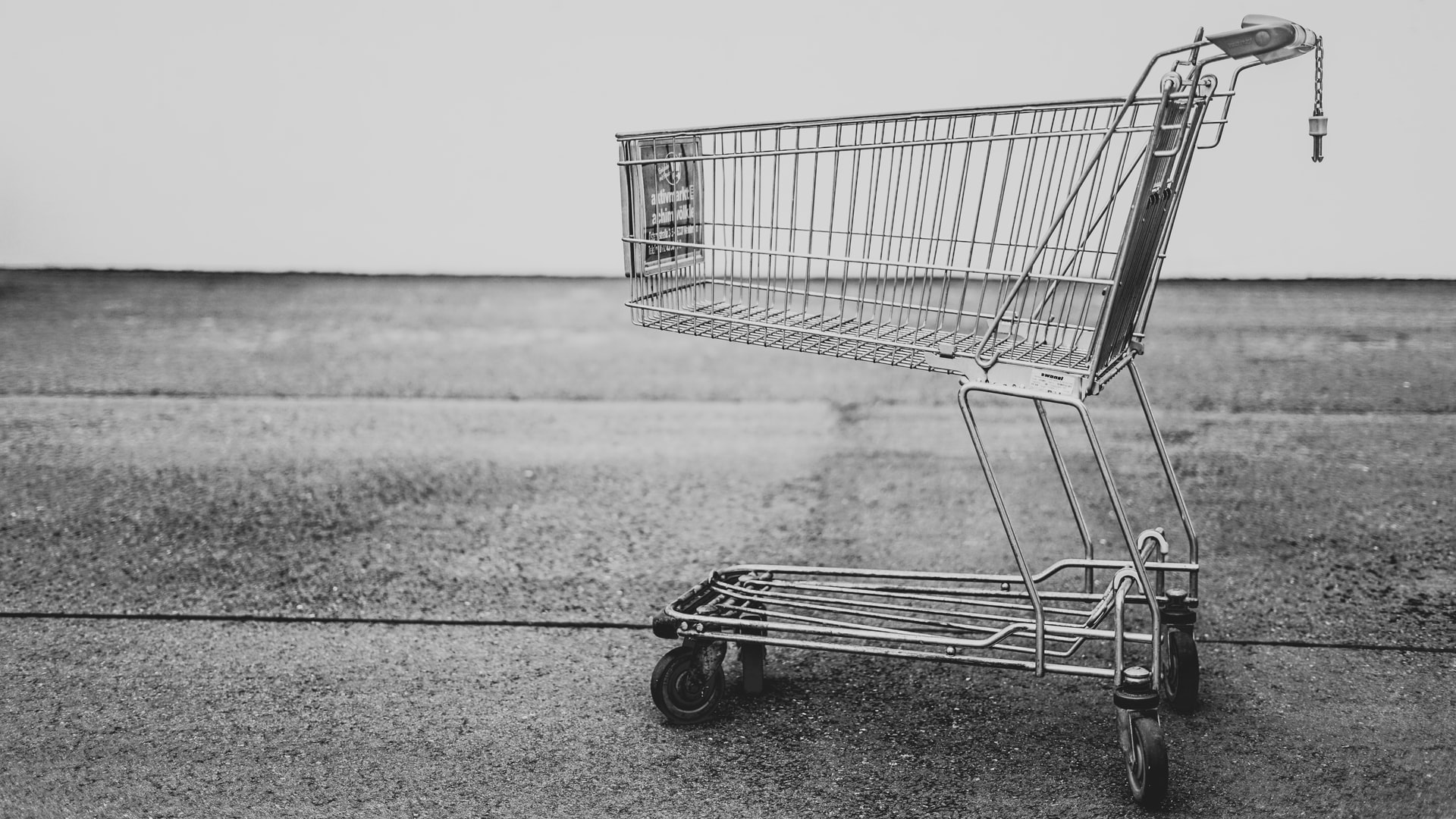 WORKING PAPER | The impact of COVID-19 on consumption poverty in Mozambique | Giulia Barletta, Finório Castigo, Eva-Maria Egger, Michael Keller, Vincenzo Salvucci, and Finn Tarp
WORKING PAPER | The impact of COVID-19 on consumption poverty in Mozambique | Giulia Barletta, Finório Castigo, Eva-Maria Egger, Michael Keller, Vincenzo Salvucci, and Finn Tarp
This study assesses the impact of the COVID-19 pandemic and the state of emergency implemented by the Government of Mozambique on household consumption poverty. To predict changes in income and the associated effects on poverty and inequality, we rely on macroeconomic impacts estimated by Betho et al. using a social accounting multiplier model. Read more
WORKING PAPER | Informal freelancers in the time of COVID-19 | Sam Jones and Ivan Manhique
Despite the severe negative economic shock associated with the COVID-19 pandemic, evidence from many contexts points to a surge in sales on online platforms, as well as shifts in the composition of demand.
This paper investigates how the pandemic has affected both the supply of and demand for informal manual freelancers in Mozambique. Using data from the digital labour marketplace Biscate, we quantify dynamics along four main dimensions: responses to infection rates, official restrictions on activity, changes in workplace mobility, and employment conditions. Read more
 WORKING PAPER | The macroeconomic impact of COVID-19 in Mozambique | Rosário Betho, Marcia Chelengo, Sam Jones, Michael Keller, Ibraimo Hassane Mussagy, Dirk van Seventer, and Finn Tarp
WORKING PAPER | The macroeconomic impact of COVID-19 in Mozambique | Rosário Betho, Marcia Chelengo, Sam Jones, Michael Keller, Ibraimo Hassane Mussagy, Dirk van Seventer, and Finn Tarp
This study aims to assess the economic costs of COVID-19 and the state of emergency implemented by the Government of Mozambique, relying on a social accounting matrix. It produces numerical results that represent the direct effect on (or ‘shocks’ to) the economy associated with the pandemic. We distinguish four channels—supply, demand, investment, and export—by which the state of emergency and other efforts influence economic activity. Read more
WORKING PAPER | COVID-19 and the state | Rachel M. Gisselquist and Andrea Vaccaro
We expect effective state institutions to matter in a country’s ability to respond to crises. Yet notably in the first year of the COVID-19 pandemic, what has stood out in simple global snapshots is that wealthier countries with stronger institutions have had the highest numbers of cases and fatalities on average, while many poorer countries with weaker institutions have been praised for more effective pandemic responses. Read more
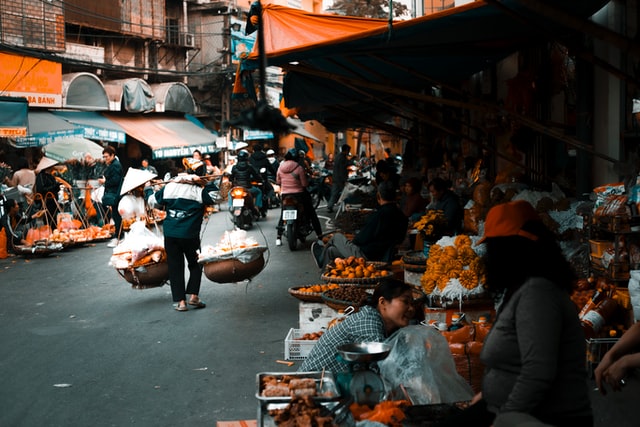 WORKING PAPER | Forecasting recovery from COVID-19 using financial data:
WORKING PAPER | Forecasting recovery from COVID-19 using financial data:
An application to Viet Nam | Jesse Lastunen and Matteo Richiardi
This working paper introduces a new methodology to nowcast the effects of the COVID-19 crisis and forecast its evolution in small, export-oriented countries. The method is applied to Viet Nam, one of the most open economies in the world, and obtains predictions that are close to (though more optimistic than) later projections by the International Monetary Fund and other international forecasters. Our claim is that this better-than-expected performance was visible in stock market data early on but was largely missed by conventional methods. Read more
BLOG | Covid-19 lays bare Cape Town’s social divide, deepens underlying inequalities | Simone Schotte and Rocco Zizzamia
The COVID-19 pandemic delivered a devastating economic shock to livelihoods across the world. In Cape Town, it has been toughest on those who had just found a way to keep their heads above water, living on the fringes of urban society. Read more
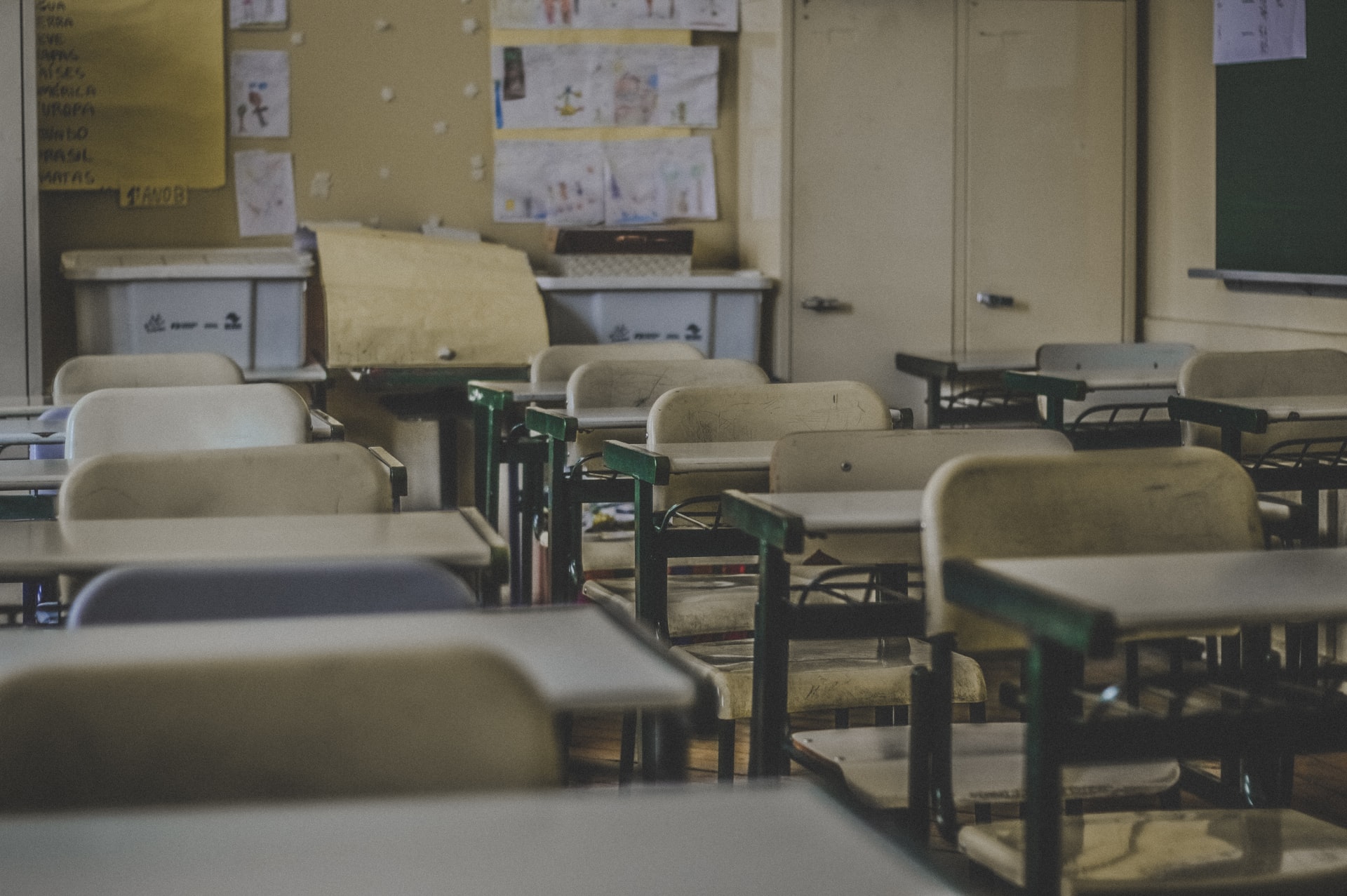 BLOG | Adding insult to injury – the impacts of COVID-19 on urban youth in Mozambique | Eva-Maria Egger, Ivan Manhique, and Finn Tarp
BLOG | Adding insult to injury – the impacts of COVID-19 on urban youth in Mozambique | Eva-Maria Egger, Ivan Manhique, and Finn Tarp
The negative economic and social impacts of the COVID-19 pandemic in Mozambique range from reduced social interaction to business closures, job losses, and increased poverty. Existing evidence already shows significant effects on the transitions of young people graduating from technical and vocational schools into the world of work. For disadvantaged youth in urban areas, the pandemic has further reduced their prospects. Read more
REPORT | How COVID-19 is affecting workers and their livelihoods in urban Ghana:
Results from the GSPS-COVID panel survey | Simone Schotte, Michael Danquah, Robert Darko Osei and Kunal Sen
This survey is a collaborative project conducted by researchers of the United Nations University World Institute for Development Economics Research (UNU-WIDER) and the Institute of Statistical, Social and Economic Research (ISSER), University of Ghana, Legon.
It presents one of the few datasets that allow assessing the immediate and near-term impact of the COVID-19 pandemic and related policy measures on labour market outcomes in sub-Saharan Africa, focusing on the livelihoods of workers in urban Ghana. Read more
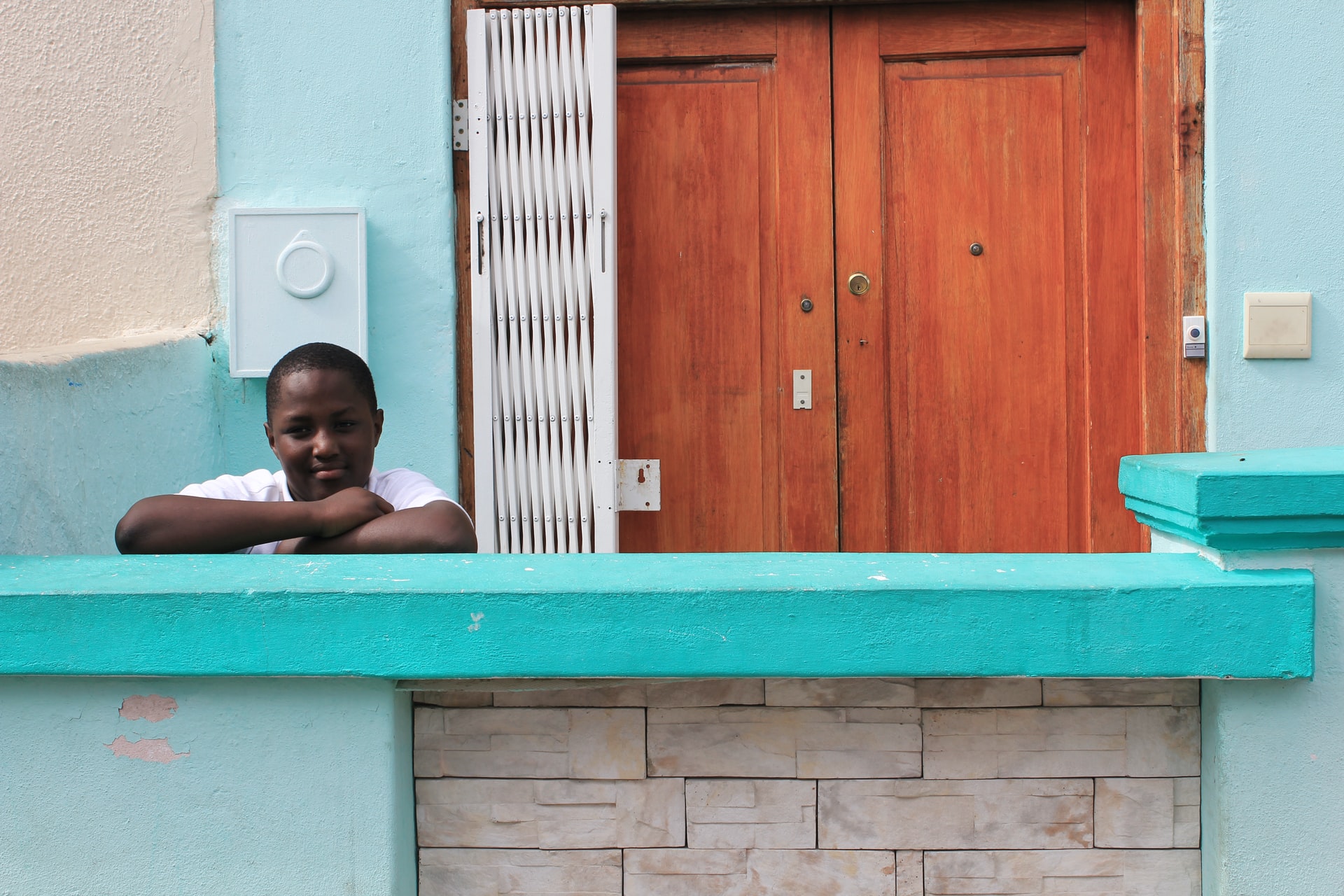 WORKING PAPER | Analysis of the distributional effects of COVID-19 and state-led remedial measures in South Africa | Helen Barnes, Gabriel Espi-Sanchis, Murray Leibbrandt, David McLennan, Michael Noble, Jukka Pirttilä, Wynnona Steyn, Brenton van Vrede, and Gemma Wright
WORKING PAPER | Analysis of the distributional effects of COVID-19 and state-led remedial measures in South Africa | Helen Barnes, Gabriel Espi-Sanchis, Murray Leibbrandt, David McLennan, Michael Noble, Jukka Pirttilä, Wynnona Steyn, Brenton van Vrede, and Gemma Wright
This paper explores the impact of the first wave of the COVID-19 pandemic in South Africa on income poverty and inequality in South Africa. Read more
WORKING PAPER | COVID-19 and trade facilitation in Southern Africa: Implications for the AfCFTA | Kudzai Mataba and Faizel Ismail
This working paper looks at the impact of the border closures in response to the pandemic, and its impact on trade and the movement of goods in and out of the Southern African Development Community (SADC). The border closures in relation to trade facilitation in Southern Africa and the position of the SADC cluster of ministers of trade and transport are also considered. Read more
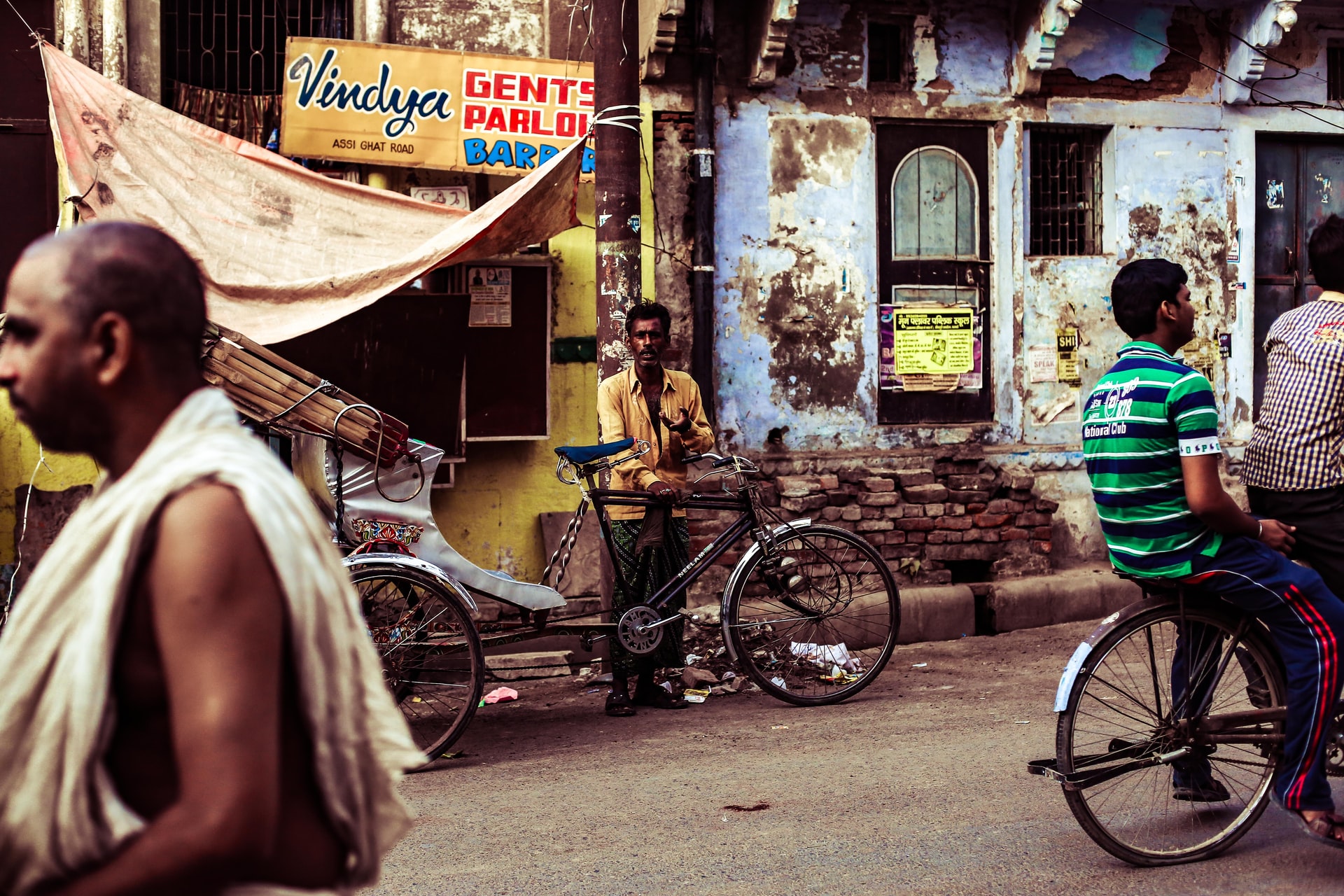 WORKING PAPER | The gendered crisis: livelihoods and mental well-being in India during COVID-19 | Farzana Afridi, Amrita Dhillon, and Sanchari Roy
WORKING PAPER | The gendered crisis: livelihoods and mental well-being in India during COVID-19 | Farzana Afridi, Amrita Dhillon, and Sanchari Roy
This paper studies the impact of the COVID-19 crisis on the gendered dimensions of employment and mental health among urban informal-sector workers in India. Read more
BLOG | Ghana's lockdown hit vulnerable workers hard: What needs to happen next time | Simone Schotte, Michael Danquah, Robert Darko Osei and Kunal Sen
We looked at how the lockdown strategies in Ghana affected the labour market in the country. The aim was to identify lessons that could be learnt from Ghana’s policy response to the pandemic. And to glean insights that could be useful for the design of future policies in Ghana as well as other countries in the region. Read more
 BLOG | Ecuador’s social protection system failed during the pandemic: It needs a rethink | H. Xavier Jara, Lourdes Montesdeoca, Iva Tasseva
BLOG | Ecuador’s social protection system failed during the pandemic: It needs a rethink | H. Xavier Jara, Lourdes Montesdeoca, Iva Tasseva
Ecuador has been hit hard by COVID-19. According to the World Health Organization, it has one of the highest rates of deaths per million people in Latin America, and one of the highest case fatality rates in the world. Furthermore, our study shows that income poverty and inequality increased dramatically in Ecuador between December 2019 and June 2020 due to the pandemic. Read more
WORKING PAPER | Do pandemics lead to rebellion? Policy responses to COVID-19, inequality, and protests in the USA | Francesco Iacoella, Patricia Justino, Bruno Martorano
This paper analyses how inequality across counties in the United States of America has shaped the impact of the COVID-19 pandemic on the incidence of protests.
The empirical analysis combines weekly data between January and December 2020 on levels of COVID-19-related policy stringency and protest incidence at the county level with measures of county-level inequality at the start of the pandemic. Read more
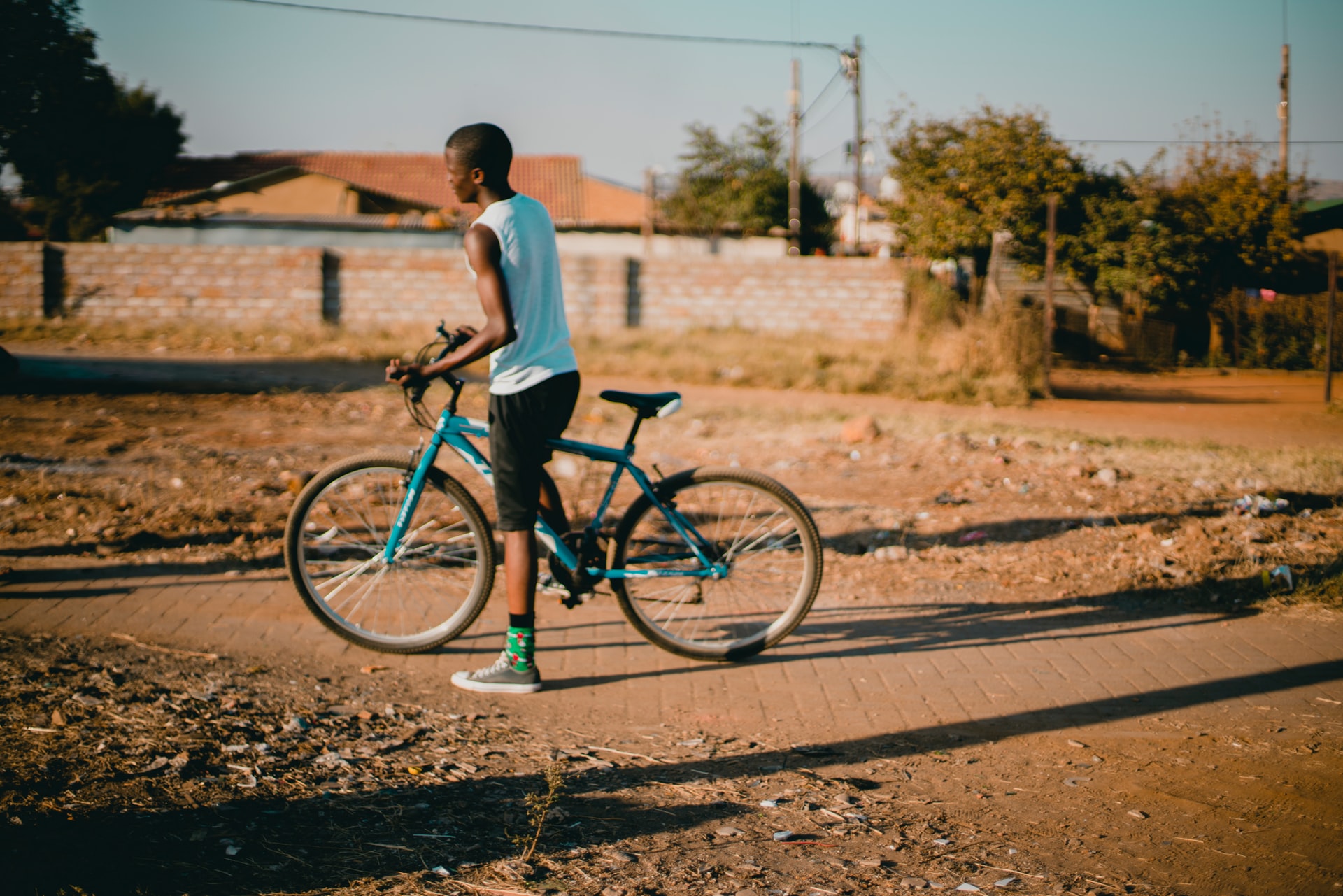
WORKING PAPER | The livelihood impacts of COVID-19 in urban South Africa | Simone Schotte & Rocco Zizzamia
This paper investigates the impact of the COVID-19 pandemic and related policy measures on livelihoods in urban South Africa. Using qualitative research methods, we analyse two rounds of semi-structured phone interviews, conducted between June and September 2020 in the township of Khayelitsha, Cape Town. We contextualise these by presenting a snapshot of the nationwide dynamics using quantitative panel data. Read more
WORKING PAPER | The impact of the COVID-19 pandemic on the poor: Insights from the Hrishipara diaries | Risto Rönkkö, Stuart Rutherford and Kunal Sen
In this paper, we examine the economic impact of the COVID-19 pandemic on the livelihoods of the poor. We use an unusually rich data set from a ‘financial diaries’ study known as the Hrishipara Daily Diaries Project.The data set tracks the economic and financial transactions of 60 individuals and their families in a semi-rural setting in Bangladesh on a real-time basis from October 2019 to September 2020. We document individual diarists’ behavioural responses to COVID-19, which reveal the varied experiences of the poor during the pandemic.
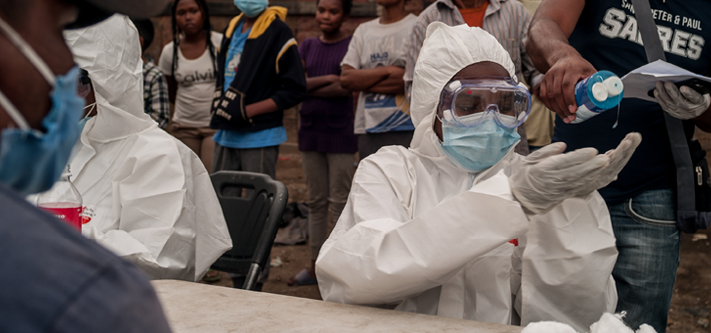 BLOG | What does COVID-19 mean for Africa? | Maureen Were and Milla Nyyssölä
BLOG | What does COVID-19 mean for Africa? | Maureen Were and Milla Nyyssölä
The COVID-19 pandemic has led to an exceptional social and economic crisis all over the world, with Africa among the hardest-hit regions. What are the most acute challenges facing the continent during and after the pandemic? What are the emerging opportunities to be seized? Read more
WORKING PAPER | The labour market impact of COVID-19 lockdowns | Simone Schotte, Michael Danquah, Robert Darko Osei, & Kunal Sen
In this paper, we provide causal evidence of the impact of stringent lockdown policies on labour market outcomes at both the extensive and intensive margins, using Ghana as a case study. Read more
 WORKING PAPER | The role of automatic stabilizers and emergency tax–benefit policies during the COVID-19 pandemic in Ecuador | H. Xavier Jara, Lourdes Montesdeoca and Iva Tasseva
WORKING PAPER | The role of automatic stabilizers and emergency tax–benefit policies during the COVID-19 pandemic in Ecuador | H. Xavier Jara, Lourdes Montesdeoca and Iva Tasseva
This paper makes use of tax–benefit microsimulation techniques to quantify the distributional effects of COVID-19 in Ecuador and the role of tax–benefit policies in mitigating the immediate impact of the economic shocks. Read more
BLOG | Coronavirus: five ways some states have used the pandemic to curtail human rights and democracy | Rachel M. Gisselquist and Durgesh Solanki
In the wake of the COVID-19 outbreak, at least 95 countries declared a national emergency, empowering governments to act in ways they would not normally to protect citizens.
Such exceptional periods pose major risks for democracy and human rights, providing opportunities for leaders and states to consolidate power. Read more
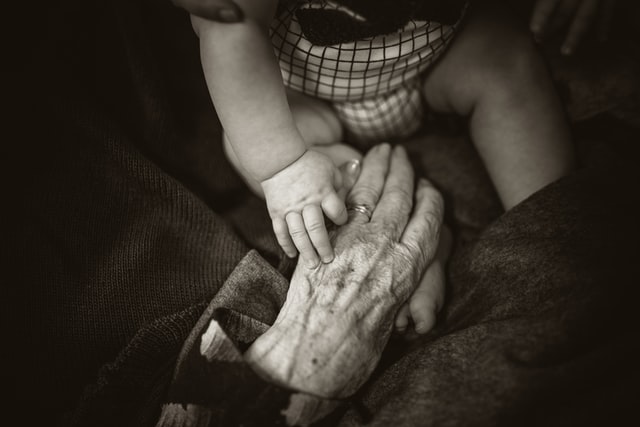 BLOG | Studying COVID-19 through the lens of microsimulation | Jesse Lastunen and Pia Rattenhuber
BLOG | Studying COVID-19 through the lens of microsimulation | Jesse Lastunen and Pia Rattenhuber
As the crisis caused by the COVID-19 pandemic evolves, developing nations are struggling to deliver economic assistance and public services to their citizens, under pressures of fiscal constraints and tax revenue losses. To help governments in the developing world navigate through the crisis, it is important to improve our understanding of the effects of the pandemic and related public measures on poverty and inequality. Read more
BLOG | Evidence matters for inclusive growth policy | Gimelgo Xirinda
Like many developing countries, Mozambique is struggling with problems of poverty, inequality, low productivity, unemployment, and low institutional capacity. The COVID-19 pandemic is now adding to these challenges. Finding solutions hinges on examining, understanding, and building the evidence that is critical in making our policy choices. Read more
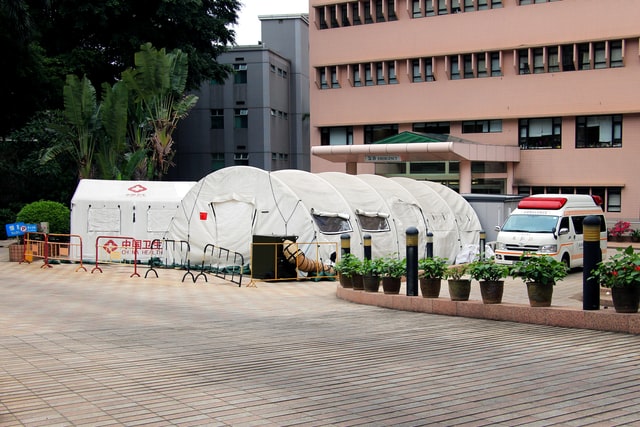 WORKING PAPER | Do bigger health budgets cushion pandemics? | Arusha Cooray, Krishna Chaitanya Vadlamannati, and Indra de Soysa
WORKING PAPER | Do bigger health budgets cushion pandemics? | Arusha Cooray, Krishna Chaitanya Vadlamannati, and Indra de Soysa
How has government healthcare spending prepared countries for tackling the COVID-19 pandemic? Arguably, spending is the primary policy tool of governments in providing effective health.
We argue that the effectiveness of spending in reducing COVID deaths is conditional on the existence of healthcare equity and lower political corruption, because the health sector is particularly susceptible to political spending. Read more
BLOG | Headline data suggests low-income states are coping better with the pandemic than high-income states. But is this true? | Rachel M. Gisselquist, Andrea Vaccaro
States with fragile state health systems have been commended for effective responses to the COVID-19 pandemic. But if we take into account factors such as favourable climate and the age structure of the population, the COVID-19 impact is, in fact, greater on states with weak institutions. Read more
 BLOG | The world needs a people’s vaccine | Sanjay G. Reddy and Arnab Acharya
BLOG | The world needs a people’s vaccine | Sanjay G. Reddy and Arnab Acharya
The world needs a people’s vaccine for COVID-19 — one provided universally, and accessible to the entire world population. A patent-protected vaccine could ultimately exclude many people from being vaccinated and protected. Unfortunately, most projects to develop a COVID-19 vaccine currently underway expect to recoup costs, and profit substantially by exploiting the monopoly granted by globally recognized patents. Read more
WORKING PAPER | Horizontal inequality, COVID-19, and lockdown readiness | Rachel M. Gisselquist and Anustup Kundu
A growing body of research shows that COVID-19 both reflects and exacerbates existing inequalities. However, there are significant gaps in this research area with respect to ‘horizontal’ or group-based inequalities in Global South countries. Lack of group-disaggregated data often contributes. Read more.
 WORKING PAPER | Migration and the labour market impacts of COVID-19 | Nathan Barker, C. Austin Davis, Paula López-Peña, Harrison Mitchell, A. Mushfiq Mobarak, Karim Naguib, Maira Emy Reimão, Ashish Shenoy, Corey Vernot
WORKING PAPER | Migration and the labour market impacts of COVID-19 | Nathan Barker, C. Austin Davis, Paula López-Peña, Harrison Mitchell, A. Mushfiq Mobarak, Karim Naguib, Maira Emy Reimão, Ashish Shenoy, Corey Vernot
Using detailed microdata, we document how migration-dependent households are especially vulnerable during the COVID-19 pandemic.
WORKING PAPER | Pandemics and their impact on oil and metal prices | Tony Addison & Atanu Ghoshray
This paper examines the effect of pandemics on selected commodity prices—in particular, those of zinc, copper, lead, and oil. We set up a vector autoregressive model and analyse data since the mid-nineteenth century to determine how prices reacted to pandemics such as the 1918 Spanish Flu, 1957 Asian Flu, and 1968 Hong Kong Flu. The paper concludes by estimating impulse response functions to assess likely impact and the subsequent response of commodity prices to the shock. Read more
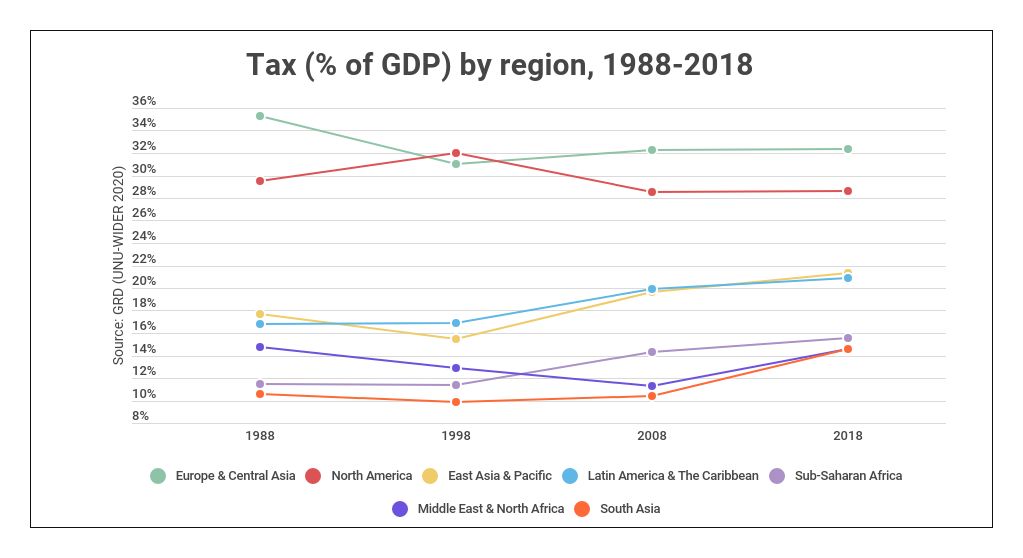 Blog | Data for better policies | Kyle McNabb
Blog | Data for better policies | Kyle McNabb
Thanks to the updated version of the Government Revenue Dataset (GRD) we are now able to gain a clear picture of tax and other revenue trends in over 190 countries over the past four decades, now up until 2018. The GRD remains the most complete source of cross-country revenue data available, and it serves as a key resource for understanding the effects of economic shocks and policy changes on public revenue.
BLOG | Barriers to opportunity for students in Mozambique | Anna Schnupp
Across Mozambique, 1,600 secondary school graduates from technical and vocational (TVET) institutes are being tracked as part of the school-to-work transition survey of the Inclusive growth in Mozambique programme — the country’s first long-term study in this area. Back in January, I conducted in-depth interviews with 22 graduates, who shared their hopes and fears for the future as they enter the working world.
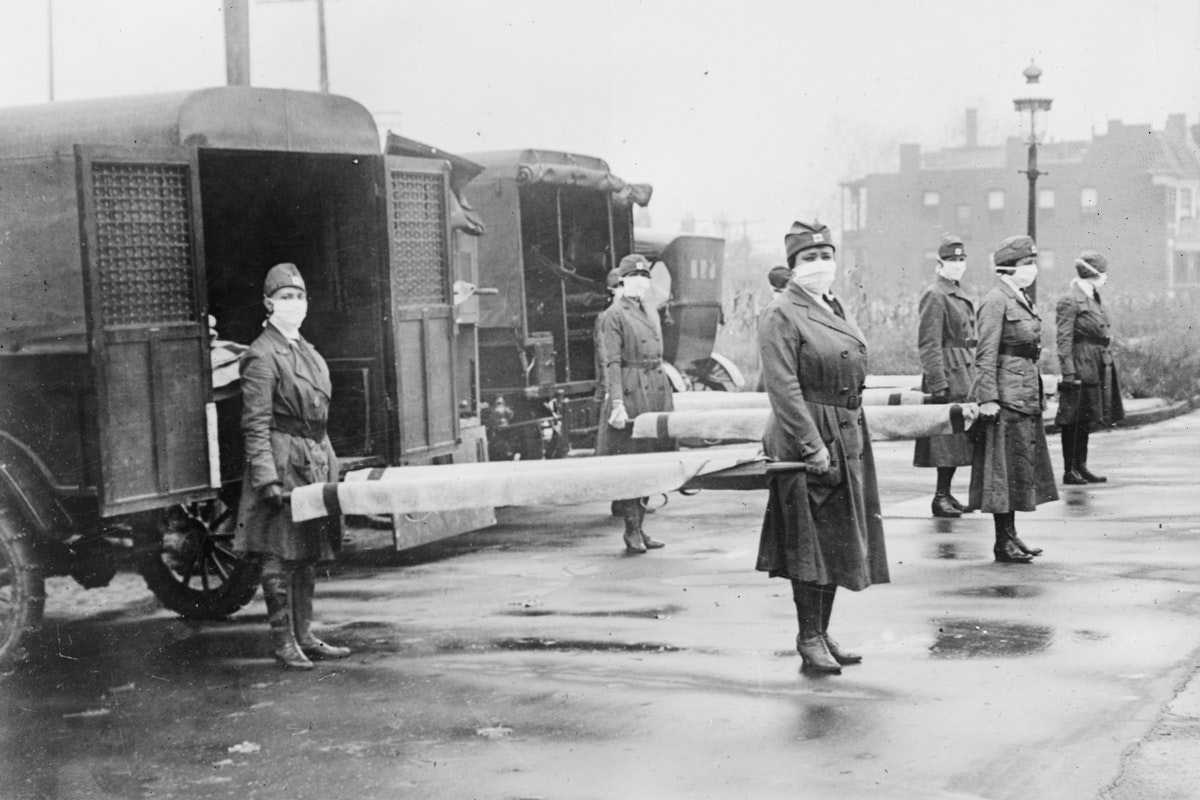 WORKING PAPER | The Great Influenza Pandemic of 1918–20 | Prema-chandra Athukorala & Chaturica Athukorala
WORKING PAPER | The Great Influenza Pandemic of 1918–20 | Prema-chandra Athukorala & Chaturica Athukorala
The Great Influenza Pandemic of 1918-20—commonly known as the Spanish flu—infected over a quarter of the world’s population and killed over 50 million people. It is by far the greatest humanitarian disaster caused by infectious disease in modern history. Epidemiologists and health scientists often draw on this experience to set the plausible upper bound (the ‘worst case scenario’) on future pandemic mortality. Read more
BLOG | Decent work and COVID-19 – it’s time for a just deal for all workers | Kunal Sen
The 2020 Jobs and Development Conference, held online on 1-4 September, focused on better jobs for development. In the policy panel with Indhira Vanessa Santos from the World Bank, Sangheon Lee from ILO, Martha Chen from the Harvard Kennedy School, and Haroon Bhorat from the University of Cape Town, we took stock of what we know about the employment effects of the pandemic in the Global South, the policy responses and their impacts, successes, and what more can be done to protect workers. Read more
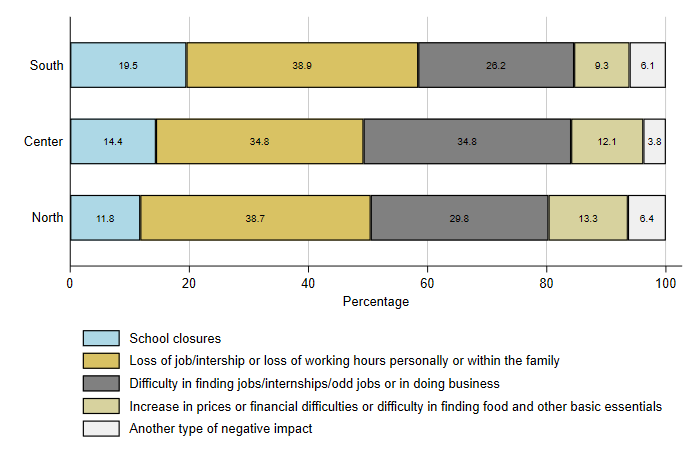 BLOG | Graduating in the shadow of the pandemic | Ivan Manhique and Gimelgo Xirinda
BLOG | Graduating in the shadow of the pandemic | Ivan Manhique and Gimelgo Xirinda
Since appearing in 2019, the COVID-19 pandemic has plunged the world into an unprecedented health and socioeconomic crisis. There is speculation that this new reality is negatively impacting, in particular, young people in the Mozambican economy. But so far, concrete information on the effects of the pandemic on the well-being of this part of the population is sparse. Read more
WORKING PAPER | Data, global development, and COVID-19 | Wim Naudé & Ricardo Vinuesa
The COVID-19 pandemic holds lessons for the relationship between data-driven decision making, the use of artificial intelligence, and development. The consequences for data policy and data science are that trust, equality, context, and political leadership are as important, if not more, than technology. Read more
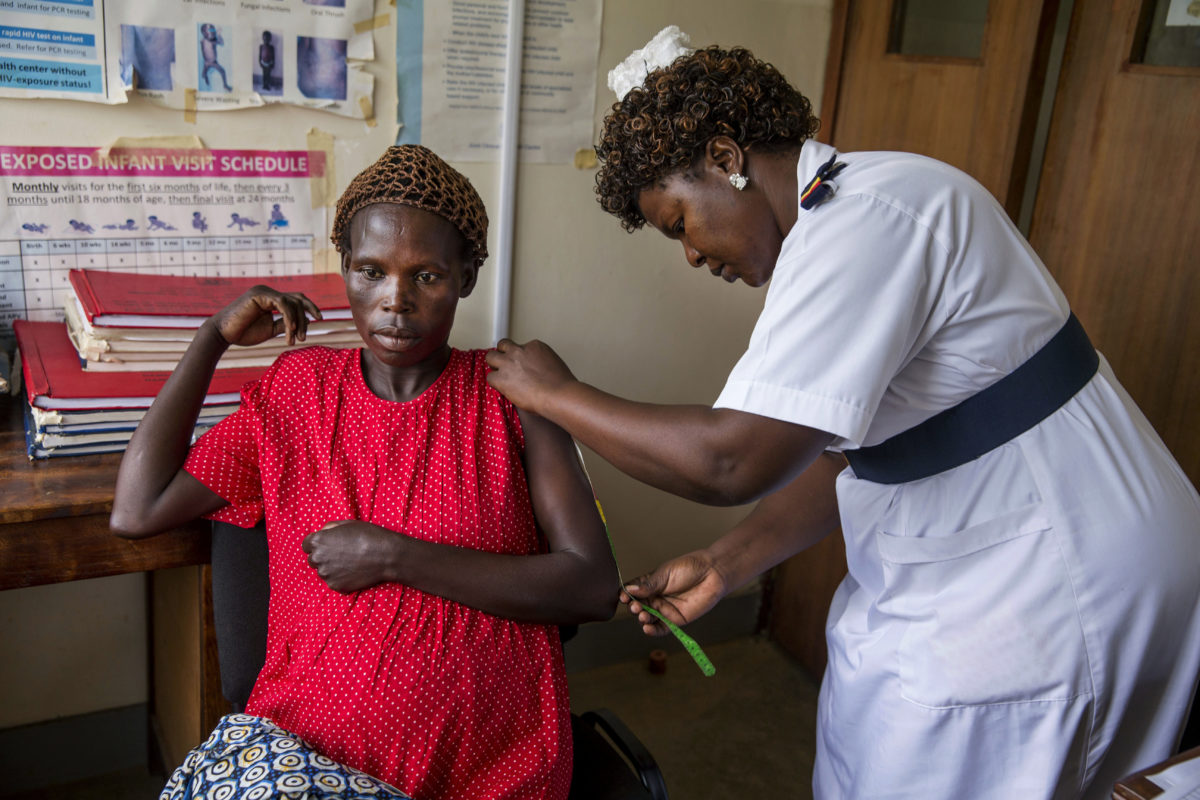 BLOG | Do we have the right balance? | Sanjay Reddy
BLOG | Do we have the right balance? | Sanjay Reddy
The world has been shaken by unprecedented efforts in the name of public health. But, efforts to arrest COVID-19 were not initially formulated with a comprehensive view of the public health in mind. These policies must be adjusted and revisited if they are to promote public health holistically conceived. Read more
BLOG | Five ways coronavirus is deepening global inequality | Kunal Sen
Before coronavirus, inequality was already increasing in many parts of the developing world. But the pandemic is going to greatly heighten existing economic and social inequalities. Here are five of the main ways inequality is heightening around the world. Read more
 BLOG | COVID-19 intensifies global need to support informal workers in their struggle | Marty Chen
BLOG | COVID-19 intensifies global need to support informal workers in their struggle | Marty Chen
The world is facing an existential crisis that poses challenging questions: whether to put people and nature before owners of capital and technology; whether to protect the rights of the disadvantaged or the interests of the elite. Read more
WORKING PAPER | State–market–society alliance | Pui Yi Wong
While mainstream economics since the 1980s has been largely characterized by neo-liberal ideology, the past decade witnessed the rise of nationalism and protectionist policies globally. The latest COVID-19 pandemic has further refocused attention on the crucial roles played by effective states in protecting public welfare and a working economy. Read more
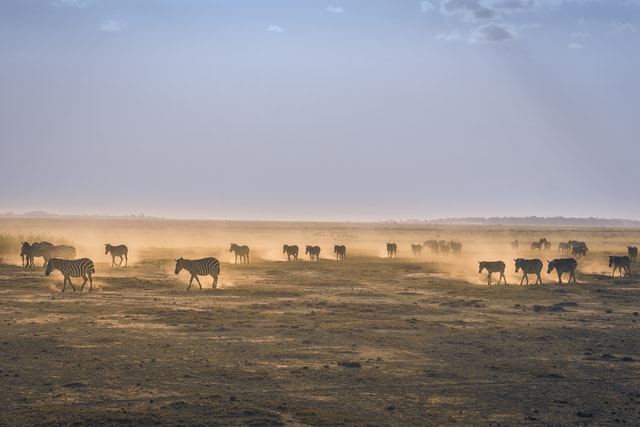 BACKGROUND NOTE | Do more diversified suppliers rebound faster than concentrated suppliers in times of shocks? | Aarti Krishnan and Giovanni Pasquali
BACKGROUND NOTE | Do more diversified suppliers rebound faster than concentrated suppliers in times of shocks? | Aarti Krishnan and Giovanni Pasquali
In this background note, we examine how different firms and sectors rebound or prevail in crises. We draw on insights from the performance (upgrading potential) of Kenyan horticulture, tea, and leather export firms during two recent, but very different, shocks to the Kenyan economy. Read more
BACKGROUND NOTE | COVID-19 and employment | Michael Danquah, Simone Schotte, and Kunal Sen
Policy makers in the Global South have responded with a range of measures, varying from cash transfers for the poor to loans for small enterprise. In this note, we summarize some of the impacts of COVID-19 on employment and livelihoods, and detail the policy responses of developing countries, drawing from the sub-Saharan African experience. Read more
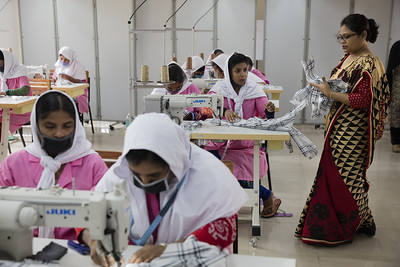 BLOG | The labour market implications of COVID-19 for Bangladeshi women | Sayema Haque Bidisha and Avinno Faruk
BLOG | The labour market implications of COVID-19 for Bangladeshi women | Sayema Haque Bidisha and Avinno Faruk
With the first confirmed case of COVID-19 in Bangladesh on 8 March 2020 and the initiation of a lockdown on 26 March 2020, the livelihoods of a significant number of people were under serious threat — with women most likely to suffer the worst impacts for a variety of reasons.
BLOG | Is COVID-19 really an exogenous shock? COVID-19 really an exogenous shock? | by Dev Nathan, Govind Kelkar
Economists invariably divide shocks into two types: endogenous and exogenous. Endogenous shocks arise from within the economic system. The Great Recession of 2008 was sparked off by the shock of the financial crisis. This clearly originated from within the economic system. In India, the demonetization of 2016 was a shock caused by an economic policy. Therefore, it was an endogenous shock from within the economy, including its policy formulation and governance system.
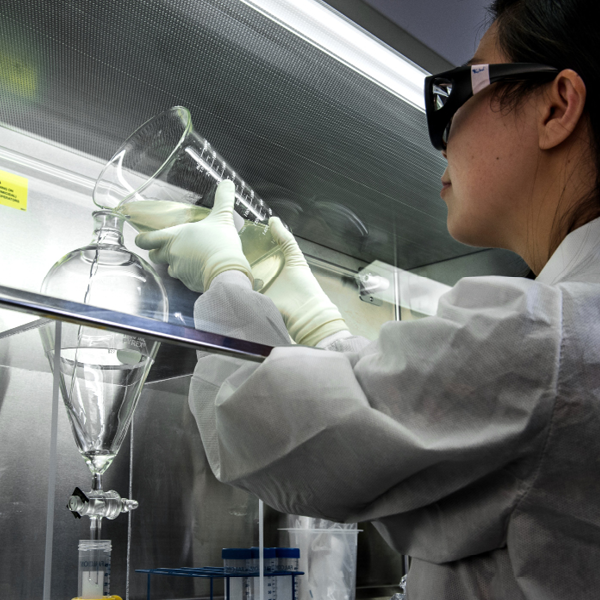 BLOG | The debate around intellectual property rights and the COVID-19 vaccine | Arnab Acharya
BLOG | The debate around intellectual property rights and the COVID-19 vaccine | Arnab Acharya
The most effective way to fight COVID-19 is by vaccinating against infection. But once the vaccine is developed, how can it be distributed across the world’s population?
The key will be decoupling the production of the vaccine from its development.
WORKING PAPER | Healthcare equity and COVID-19 | Krishna Chaitanya Vadlamannati, Arusha Cooray, Indra de Soysa
Scholars of public health typically focus on societal equity for explaining public health outcomes. Indeed, the COVID-19 pandemic has led to a spate of studies showing a tight connection between inequitable access to healthcare, welfare services, and adverse outcomes from the pandemic. Read more.
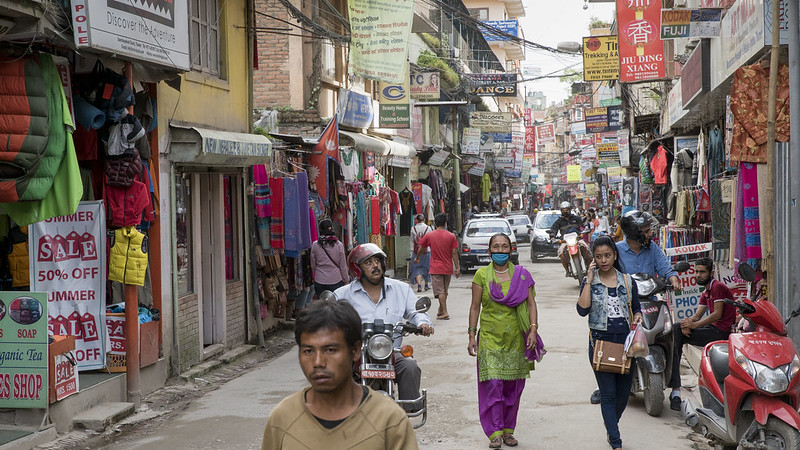 BLOG | Global poverty: coronavirus could drive it up for the first time since the 1990s | Andy Sumner, Eduardo Ortiz-Juarez, Chris Hoy
BLOG | Global poverty: coronavirus could drive it up for the first time since the 1990s | Andy Sumner, Eduardo Ortiz-Juarez, Chris Hoy
As COVID-19 slows in developed countries, the virus’s spread is speeding up in the developing world. Three-quarters of new cases detected each day are now in developing countries. And as the pandemic spreads, governments face juggling the health consequences with economic ones as this shifts to becoming an economic crisis. Read more
WORKING PAPER | Trust in the time of corona | Tilman Brück, Neil T. N. Ferguson, Patricia Justino, and Wolfgang Stojetz
The global spread of COVID-19 is one of the largest threats to people and governments since the Second World War. The on-going pandemic and its countermeasures have led to varying physical, psychological, and emotional experiences, shaping not just public health and the economy but also societies. Read more
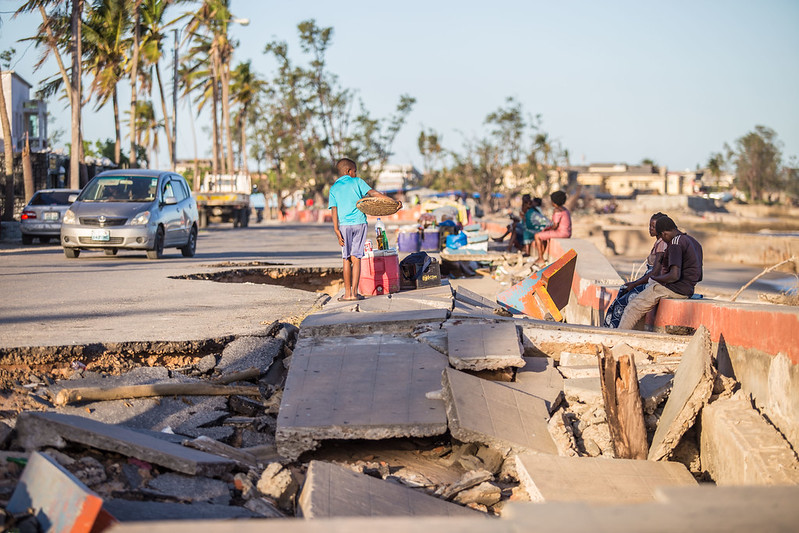 WORKING PAPER | Evolution of multidimensional poverty in crisis-ridden Mozambique | Eva-Maria Egger, Vincenzo Salvucci, and Finn Tarp
WORKING PAPER | Evolution of multidimensional poverty in crisis-ridden Mozambique | Eva-Maria Egger, Vincenzo Salvucci, and Finn Tarp
Mozambique experienced important reduction in the poverty rate until recently, before two major natural disasters hit and the country started suffering from a hidden debt scandal with associated economic slowdown. Read more
BACKGROUND NOTE | Making a COVID-19 vaccine globally available once developed | Arnab Acharya
There is a high risk that the intellectual property (IP) rights of a COVID-19 vaccine will effectively block people in many poorer countries from accessing it. To avoid this situation, I propose that a practical solution would be to separate out the manufacturing of the vaccine from its development, which would allow the vaccine to be sold at a price near the cost of its production. Read more
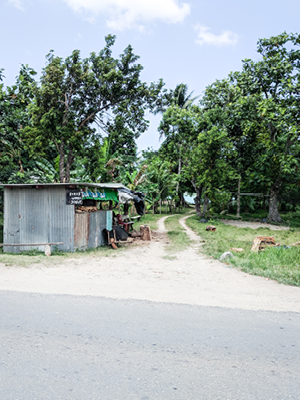 BLOG | Poverty and the pandemic in the Pacific | Chris Hoy
BLOG | Poverty and the pandemic in the Pacific | Chris Hoy
COVID-19 has had a far greater economic impact than health impact on Papua New Guinea (PNG) and the Pacific. There has been extensive commentary about the likely macroeconomic effects of lockdowns and travel bans, but less attention has been given to how damaging the current crisis has been on people’s living standards. In this blog, I help to fill this gap by drawing on analysis that Andy Sumner, Eduardo Ortiz-Juariz and I have done. Our results suggest that the number of people living in extreme poverty in the region could increase by over 40% in the short term. Read more
WORKING PAPER | Precarity and the pandemic | Andy Sumner, Eduardo Ortiz-Juarez, Chris Hoy
This paper makes a set of estimates for the potential impact of the COVID-19 pandemic on poverty incidence, intensity, and severity in developing countries and on the distribution of global poverty. We conclude there could be increases in poverty of a substantial magnitude—up to 400 million new poor living under the $1.90 poverty line, over 500 million new poor living under the poverty lines of $3.20 and $5.50. Read more
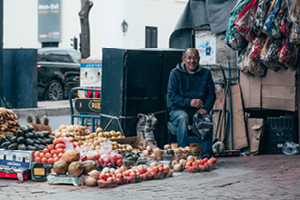 BLOG | The end of poverty postponed? | Andy Sumner, Eduardo Ortiz-Juarez, Chris Hoy
BLOG | The end of poverty postponed? | Andy Sumner, Eduardo Ortiz-Juarez, Chris Hoy
The COVID-19 pandemic continues to dominate headlines as the death toll rises and economies falter. However, far too little attention is being given to the worsening crisis in developing countries where coronavirus is spreading rapidly and governments grapple with the devastating economic consequences of prolonged shutdowns and the collapse of world trade. Three-quarters of new cases detected every day are in developing countries. Read more
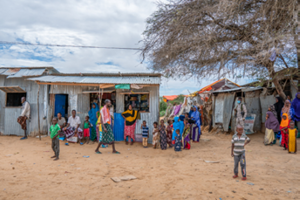
WORKING PAPER | Africa’s lockdown dilemma | Eva-Maria Egger, Sam Jones, Patricia Justino, Ivan Manhique, Ricardo Santos
The primary policy response to suppress the spread of COVID-19 in high-income countries has been to lock down large sections of the population. However, there is growing unease that blindly replicating these policies might inflict irreparable damage to poor households and foment social unrest in developing countries. Read more
BACKGROUND NOTE | COVID-19 and the socioeconomic impact in Africa: The case of Ghana | Michael Danquah and Simone Schotte
When lifting the partial lockdown, the president cited the country’s current capacity to trace, test, isolate and quarantine, and treat victims of the disease as one of the reasons for the decision. Nonetheless, the number of confirmed COVID-19 infections has been escalating. Read more
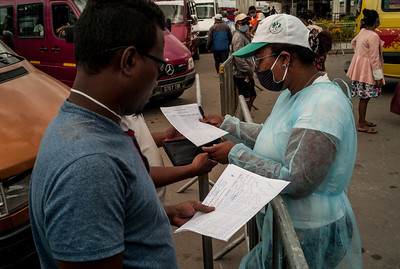 WORKING PAPER | COVID-19 - macroeconomic dimensions in the developing world | Tony Addison, Kunal Sen & Finn Tarp
WORKING PAPER | COVID-19 - macroeconomic dimensions in the developing world | Tony Addison, Kunal Sen & Finn Tarp
The pandemic has macroeconomic dimensions. First, it affects macroeconomic stability and growth. Second, the tools of macroeconomic policy—fiscal and monetary policy together with debt management and exchange rate policy—must deal with the economic shock. Read more
WORKING PAPER | COVID-19 and global poverty: Are LDCs being left behind? | Giovanni Valensisi
This paper provides a preliminary assessment of COVID-19’s impact on global poverty in the light of the IMF’s April 2020 growth forecasts. The analysis shows that the pandemic will have dramatic consequences, eroding many of the gains recorded over the last decade in terms of poverty reduction. Read more
BACKGROUND NOTE | Artificial intelligence versus COVID-19 in developing countries | Wim Naudé
Since the outbreak of the pandemic in December 2019, there has been a rush to harness AI in the fight. AI can help track and predict the spread of the infection, it can help make diagnoses and prognoses, and it can search for treatments and a vaccine. It can also be used for social control—for instance, to help isolate those that are infected and monitor and enforce compliance with lockdown measures. Read more
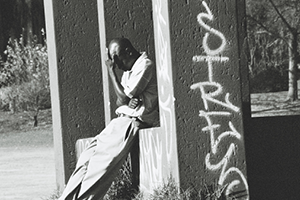 BLOG | Temporary shock or lasting poverty trap? COVID-19 in South Africa | Simone Schotte
BLOG | Temporary shock or lasting poverty trap? COVID-19 in South Africa | Simone Schotte
South Africa’s COVID-19 lockdown regulations are likely to have a devastating impact on the incomes of workers and their dependents. Already disadvantaged groups will suffer disproportionately from the adverse effects. Read more
 BLOG | Artificial intelligence vs. COVID-19 in developing countries | Wim Naudé
BLOG | Artificial intelligence vs. COVID-19 in developing countries | Wim Naudé
The rush to harness Artificial Intelligence (AI) in the fight against the pandemic may be an opportunity for developing countries to accelerate the digitalization of their economies. Read more
WORKING PAPER | COVID-19: mortality, future years lost, and demographic structure | Clive Bell
COVID-19 causes extremely high mortality among the old. This motivates a comparison of the losses of future lifetime years and future lifetime years of work ensuing from a hypothetical 25,000 excess deaths in Italy, whose affluent population is one of the world’s oldest, with those in Kenya, whose population is one of the most youthful and poor. Read more
 WIDER Webinar Series | How is COVID-19 changing development?
WIDER Webinar Series | How is COVID-19 changing development?
The webinar series features a line-up of eminent researchers and development specialists to present new research on the implications they foresee of COVID-19 for global development efforts and the economic and social impacts for the Global South. Read more
 BLOG | Who gets to work from home? | Piotr Lewandowski
BLOG | Who gets to work from home? | Piotr Lewandowski
The COVID-19 pandemic constitutes an unprecedented shock for labour markets around the world. Non-pharmaceutical interventions, such as social distancing, and limits on economic activity and mobility of people, are a necessary response. The International Labour Organization (ILO) estimates that 80% of the world population is under some form of lockdown. Read more
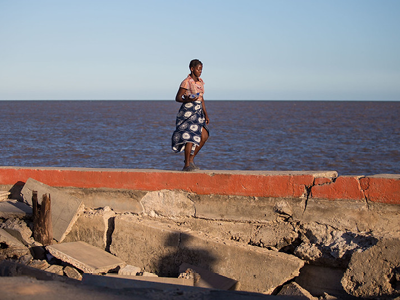 BLOG | The five criteria low income countries must have in place for lockdowns to work | Sam Jones, Eva-Maria Egger, Ricardo Santos
BLOG | The five criteria low income countries must have in place for lockdowns to work | Sam Jones, Eva-Maria Egger, Ricardo Santos
As the COVID-19 virus has spread across the globe, developing countries are starting to enact many of the same policies used in China, Europe, and North America to contain the virus. But are these policies appropriate in low income contexts? Read more
 BLOG | An unprecedented threat requires unprecedented leadership | Arkebe Oqubay
BLOG | An unprecedented threat requires unprecedented leadership | Arkebe Oqubay
COVID-19 is the greatest global threat the world has faced since the Second World War. It is not the deadliest or most infectious disease recorded, but the level of globalization and interconnectedness of the world render it particularly destructive. Read more
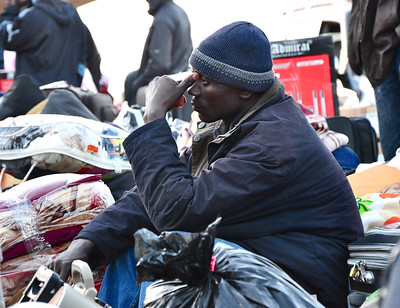 BLOG | Migrant workers in the Covid-19 pandemic | Eva-Maria Egger, Kunal Sen
BLOG | Migrant workers in the Covid-19 pandemic | Eva-Maria Egger, Kunal Sen
Millions of migrant workers around the world provide valuable income for their families and contribute more broadly to the economies of both their home and host countries. Now, as a result of border closures and widespread lockdowns, many are unable to take shelter, to go home, or to report for work. As this column explains, finding solutions to the issues facing migrant workers during the Covid-19 pandemic is imperative. Read more
BACKGROUND NOTE | COVID-19 and socioeconomic impact in Africa: The case of Kenya | Maureen Were
The COVID-19 pandemic has now spread to over 180 countries, including several countries in sub-Saharan Africa. Kenya reported its first COVID-19 case on 13 March 2020. By 31 March the number of confirmed cases had risen to 59, with over 70 per cent of infections in Nairobi. As at 22 April 2020, the number had quintupled to 303—the highest so far among the East African Community (EAC) member states. Read more
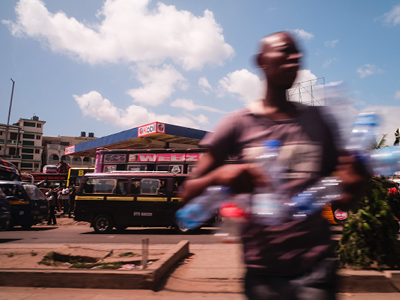 BLOG | How Africa can fight the pandemic | Arkebe Oqubay
BLOG | How Africa can fight the pandemic | Arkebe Oqubay
The response to Africa’s COVID-19 plight must be swift and at scale rather than too little, too late. In a world short of progressive global leadership, where rules-based global governance is under threat, this is a chance for African and international policymakers to take decisive action. Read more
BACKGROUND NOTE | COVID-19 and socioeconomic impact in Africa: The case of South Africa | Amina Ebrahim
What has the government of South Africa done with respect to COVID-19 measures of mitigation and suppression?
The first COVID-19 positive case was confirmed on 5 March 2020. Just ten days later, South Africa had 61 positive cases and President Ramaphosa addressed the country, calling for measures to combat the spread of the virus and declaring a national state of disaster. Read more
 BLOG | How do we live with corona? | Ghassan Baliki, Tilman Brück, Neil Ferguson, Patricia Justino, Wolfgang Stojetz
BLOG | How do we live with corona? | Ghassan Baliki, Tilman Brück, Neil Ferguson, Patricia Justino, Wolfgang Stojetz
People who live through extreme events are, often deeply, altered by the experiences they have. Even when those experiences take place predominantly in the physical realm, they are also events of consciousness. Read more
BACKGROUND NOTE | COVID-19 and socioeconomic impact in Asia: The case of India | Kunal Sen
Several countries have enacted lockdown measures in the wake of the COVID-19 pandemic to protect their health systems and reduce the number of mortalities. One of the most extreme national lockdown measures has been taken by the government of India, with over 1.3 billion persons put under a strictly enforced lockdown on 24 March for an initial period of three weeks.
What has the government of India done with respect to COVID-19 measures of mitigation and suppression? Read more
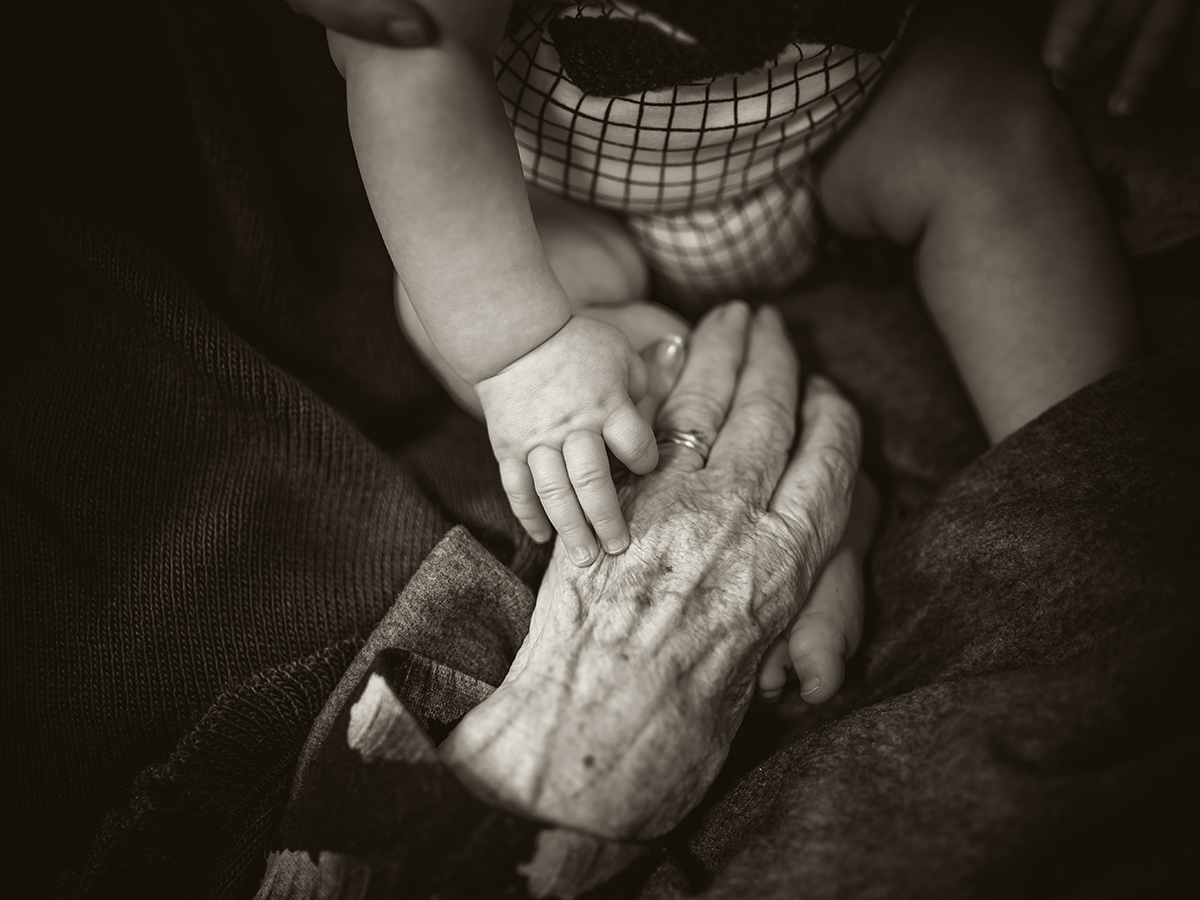 BLOG | Age composition of population and Covid-19 | Kunal Sen and Parantap Basu
BLOG | Age composition of population and Covid-19 | Kunal Sen and Parantap Basu
In this post, Basu and Sen show that Covid-19 casualty is higher in countries where there is a large ageing population, and therefore question whether a draconian lockdown is a practical policy going forward for India, where the proportion of elderly population is low. Read more
WORKING PAPER | Estimates of the impact of COVID-19 on global poverty | Andy Sumner, Chris Hoy, Eduardo Ortiz-Juarez
Our estimates show that COVID poses a real challenge to the UN Sustainable Development Goal of ending poverty by 2030 because global poverty could increase for the first time since 1990 and, depending on the poverty line, such increase could represent a reversal of approximately a decade in the world’s progress in reducing poverty. Read more
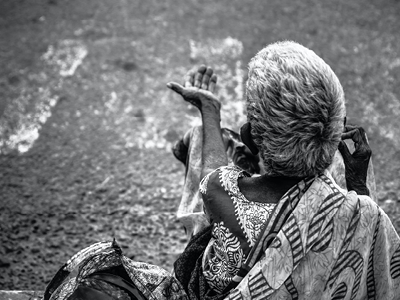 BLOG | Will COVID-19 lead to half a billion more people living in poverty in developing countries? | Andy Sumner, Chris Hoy, Eduardo Ortiz-Juarez
BLOG | Will COVID-19 lead to half a billion more people living in poverty in developing countries? | Andy Sumner, Chris Hoy, Eduardo Ortiz-Juarez
The impacts of COVID-19 in developing countries are starting to be felt. The Economist went as far as to call it the ‘next calamity’, noting how overlooked the impact on poorer countries has been. Read more
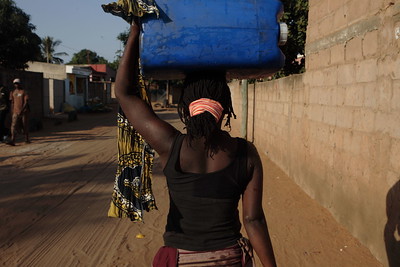 BLOG | Is Mozambique prepared for a lockdown during the COVID-19 pandemic? | Sam Jones, Ricardo Santos, Eva-Maria Egger
BLOG | Is Mozambique prepared for a lockdown during the COVID-19 pandemic? | Sam Jones, Ricardo Santos, Eva-Maria Egger
Many countries have introduced home isolation and lockdown measures as a response. These measures have been adopted by governments in the Global North and the Global South, but are likely to cause greater difficulty in lower-income countries. Read more
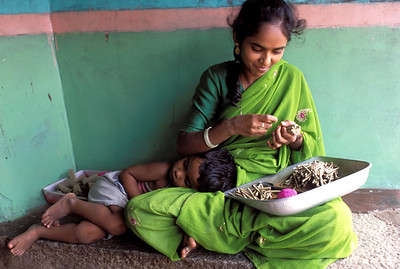 BLOG | COVID-19 and lockdowns: Are women more affected? | Bina Agarwal
BLOG | COVID-19 and lockdowns: Are women more affected? | Bina Agarwal
Globally, governments are using lockdowns to contain the spread of COVID-19. This has disproportionately affected the poor, the homeless, and the migrants who are left without livelihoods, especially where the lockdown is country-wide, as in India. But has it affected women more than men? If so, in what ways? Read more
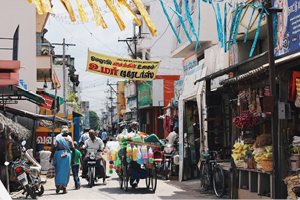 BLOG | To die from hunger or the virus: An all too real dilemma for the poor in India (and elsewhere) | Marty Chen
BLOG | To die from hunger or the virus: An all too real dilemma for the poor in India (and elsewhere) | Marty Chen
On March 24, in a speech to the nation, Narendra Modi, Prime Minister of India, announced a 21-day lockdown. With only four hours’ notice, 1.3 billion people were expected to stay at home and not venture out for three weeks. All buses, trains and domestic air flights were suspended. But the authorities had not planned for, much less prepared for, how to handle an abrupt lockdown in such a vast, complex and unequal country. Read more
Read more on COVID-19, informal workers and WIEGO’s work during this crisis at wiego.org
 SURVEY | Join our citizen science project
SURVEY | Join our citizen science project
UNU-WIDER has partnered up with a team of international researchers from the International ISDC, IDS and IGZ on an exciting and very timely research initiative to collect real time data on the coronavirus and its social and economic consequences. The project is called Life with Corona, with overall aim to build a global knowledge base about how people are dealing with the exceptional situation we currently find ourselves living in.
Available in 15 languages Life with Corona includes various modules that allow a comprehensive insight into daily life during the pandemic. Some of the research questions include:
• What implications will this Corona pandemic have on the daily lives of people around the world?
• How will it affect the mental health, consumption and eating habits, social cohesion as well as expectations towards politics and public administration?
• How will these factors develop over time as new information about the virus emerges and new measures are implemented by states?
Scientifically-valid answers to these questions are of critical importance for dealing with the pandemic for maintaining health, nutrition, and social peace around the world.
Take the survey here
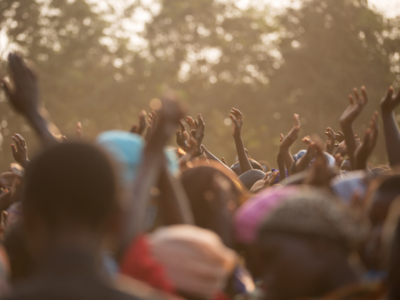 BLOG When COVID-19 comes to Africa | Arkebe Oqubay
BLOG When COVID-19 comes to Africa | Arkebe Oqubay
There is no telling how long it will take to bring the COVID-19 coronavirus under control, or how many people will be affected. But African governments, in cooperation with communities and international actors, can take steps now to limit the damage – and lay the foundations for a healthier, more resilient future.
Read more
 Join the network
Join the network